Agriculture & Environment
East African EfD centers strategize on how to promote sustainable use of Lake Victoria Basin (LVB)
Published
2 years agoon
By
Jane Anyango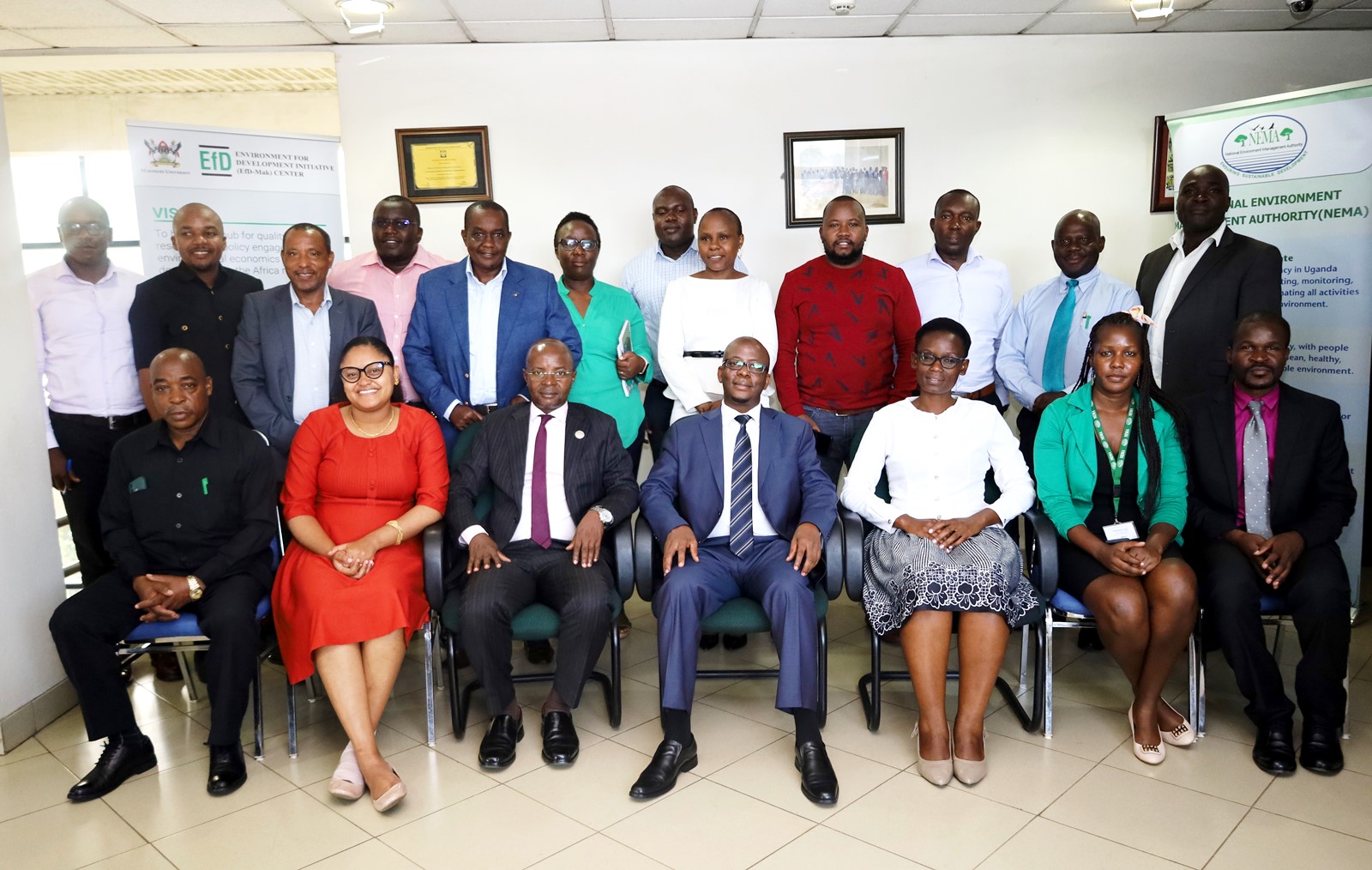
Lake Victoria is a trans-boundary natural resource, underpinning the economies and livelihoods of the population within the wider catchment area of Burundi, Kenya, Tanzania, Rwanda and Uganda. The most significant part of the Lake, 51%, is in Tanzania, occupying 35,088 Km. Uganda has 43% of the Lake, while Kenya has 6%.
The lake acts as a source of fresh water, fishing, a waste repository and provides food, energy, water for irrigation, industry, drinking, tourism within and cross border transportation.
However, the lake and its surrounding areas have faced many challenges including rising lake water levels, moving islands, encroachment, ecological and biodiversity degradation which is evident in the probable extinction of several fish species.
The violation of the buffer zone policy of 200 meters away from the lake by investors, industries, farmers and settlers, increasing pollutants in form of polythene bags, plastics and untreated wastes and poor fishing methods have changed the lake ecosystem.
East African governments are signatories to the regional and international treaties targeted at conserving, protecting and ensuring sustainable use of natural resources within the lake basin. Whereas the international treaties have been domesticated in national legislation and, institutions and agencies have been established with mandates to safeguard the fragile ecosystems, unstainable use and management of the lake basin persists. This is partly attributed to political interferences, ineffective monitoring and poor implementation of the existing laws on the management and utilization of the lake.
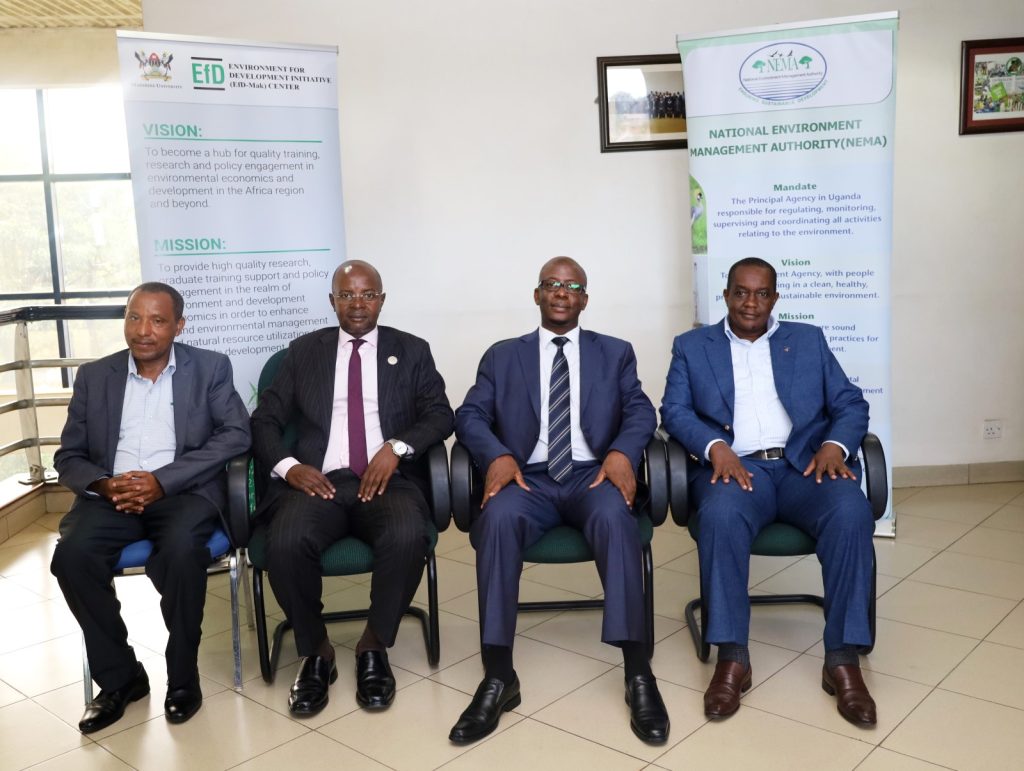
Because of unstainable management of the lake, countries have witnessed unprecedented consequences such as floods and mudslides, extreme and unpredictable weather changes including where dams could not generate electricity due to very low water level and many other livelihood, social and economic impacts including loss of lives.
East African EfD centers meet in Uganda to discuss LVB issues
On 7th June 2023, Environment for Development Initiative (EfD) Makerere University Uganda organized a one-day high level policy dialogue on changes of Lake Victoria’s hydrology, water quality and livelihoods that was hosted by Uganda’s environment watchdog – the National Environment Management Authority (NEMA) at its head office in Kampala, Uganda.
The dialogue was attended by the three East African EfD Centres led by the Directors; Prof. Richard Mulwa (EfD-Kenya), Dr. Onesmo Selejio (EfD Tanzania) and Prof. Edward Bbaale, for EfD-Uganda. Each country was represented by the delegates from different agencies. Among others, delegates from Kenya included Kenya Marine and Fisheries Research Institute (KMFRI), National Environment Management Authority (NEMA) of Kenya, Lake Basin Development Authority (LBDA) of Kenya and academia from the University of Nairobi. In Tanzania delegates spanned from Ministry of Livestock and Fisheries, Lake Victoria Basin, Mwanza, and other Academicians from Adhi University and University of Dar es Salaam. In Uganda, Delegates came from different agencies including Ministry of Finance, planning and Economic Development (MoFPED), National Planning Authority (NPA), Ministry of Water and Environment (MoWE), Ministry of Agriculture, Animal Industry and Fisheries (MAAIF), National Environment Management Authority (NEMA), Environmental Police Protection Unit (EPPU), and academicians from Makerere University.
The Executive Director NEMA and host of the dialogue Dr. Akankwasah Birerega also graced the meeting.
Each country presented an in-depth analysis of the issues around LVB pertinent to its areas of jurisdictions, and later went into plenary discussion where short, mid and long-term interventions were proposed
Giving the background to the meeting, the Director EfD-Mak center Prof. Edward Bbaale said the need for this meeting arose from the impacts Uganda felt in 2020 when the country experienced heavy rainfall that made the Lake Victoria Basin (LVB) unable to hold the water and caused a lot of havoc and predicaments on livelihoods.
During the period of late January 2020, fears of Lake Victoria bursting its banks started to be felt which later was followed by damaging of several landing sites and settlements as a result of floods. This led to disasters that left almost half a million people homeless and property worth billions of money had been lost in Uganda, Kenya and Tanzania.
In April 2020, heavy floods with the moving vegetation chocked the hydroelectric power generation turbines at Jinja on Lake Victoria leading to a total blackout of the entire nation during a presidential address to the nation.
As a center, Bbaale said, the EfD-Mak conducted an investigation on the cause and what Government of Uganda can do to circumvent some of the issues through conducting national wide policy tours and came up with a policy paper.
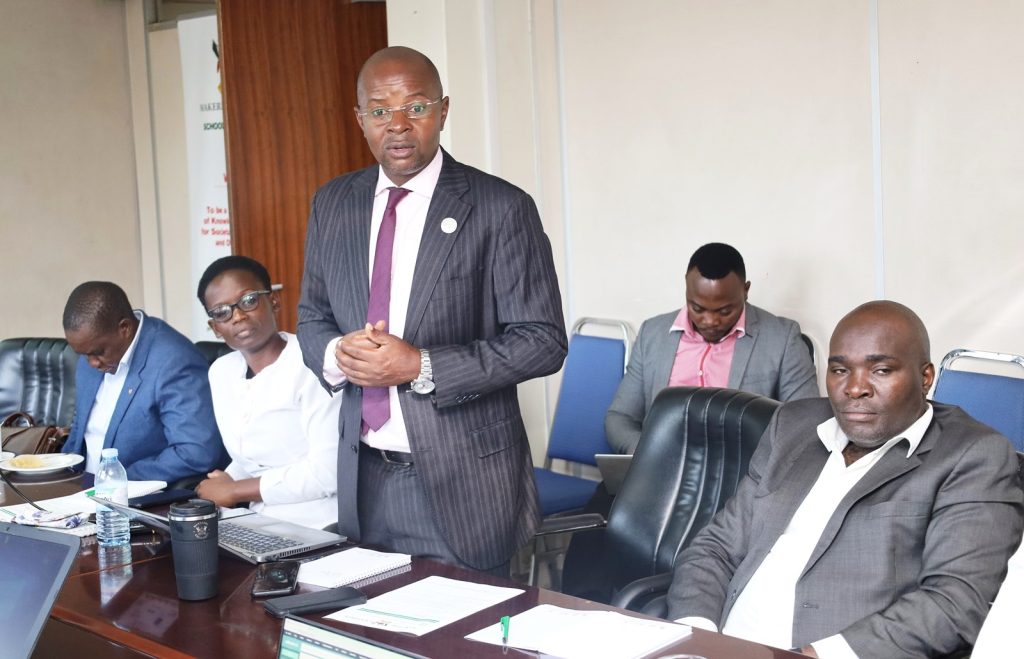
Bbaale attributed the 2020 floods to Climate change, Lake Sedimentation due to catchment degradation and Buffer zone encroachment and lack of Regional Consensus on a well-coordinated Policy of regulating Lake Victoria inflow and outflow
The Director however said it was noted that L. Victoria is a trans-boundary natural resource benefiting East African countries and a source of River Nile holding livelihoods in Egypt and Sudan and thus, what Uganda does was bound to affect other countries, hence the need for the East African EfD centers to converge and debate what they can do together in terms policy frameworks and to tap from one another’s best practices.
“The current problems may threaten Lake Victoria basin for centuries if not well addressed at present. For example, all the major lakeside cities in Uganda, Kenya and Tanzania could lose access to Lake Victoria in as little as 100 years.
We thought that we could leverage on each other’s information and knowledge on what we have collected concerning lake Victoria basin, come together, understand the issues from each country and how we can come up with one voice in the East African parliament and individual policy making bodies in our countries”, Said Bbaale
Bbaale reported that Environmental valuation in Uganda has huge capacity gaps. And more than often, environmentalists have vaguely responded to the president to weigh an industry over maintaining a wetland and many politicians have failed on the floor of parliament.
In addition to a deepened trans boundary cooperation on the management of the lake, tackling point and non-point source pollution, Bbaale called for the development of a coherent plan for conservation and rehabilitation of the fish fauna in Lake Victoria, strengthening capacity and human resources in environmental valuation as well as involvement of the general public in the management of the lake and observance of the buffer zone size of 200m away from the lake.
See the detailed EfD Mak presentation at the bottom of the page.
A cross-cutting enforcement body and an integrated Lake Victoria Basin Management policy for East Africa needed while producers must be responsible for their waste – Prof. Mulwa Kenya EfD Centre
The Director EfD-Kenya Prof Richard Mulwa decried the continued unsustainable utilization of natural resources despite many meetings targeting LVB. He said, the target for policy making on the lake basin and its ecosystem has been a moving target and would require a dynamic, adaptive, and collaborative approaches in balancing utilization and conservation.
Prof. Mulwa expressed the need for continued reviews and dialogues that incorporate the changing dynamics for example the changing climate.
At national level, Prof. Mulwa reported that Kenya has adopted integrated organic agriculture to reduce use of agrochemicals, promotes sustainable land use practices such as agro-forestry, crop rotation, conservation agriculture, and strives to eliminate the destructive fishing gears and enforcement of the allowable catch.
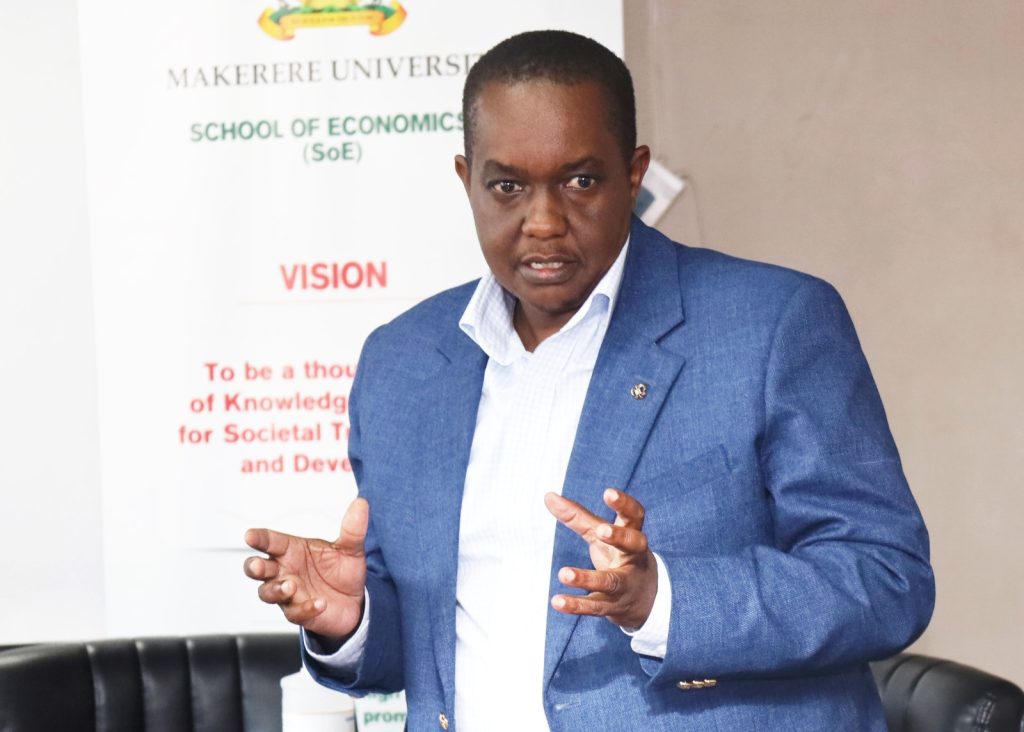
Other national interventions according to Prof. Mulwa are enhancement of waste management technologies and incorporation of the oil spills management plan and adoption of cleaner production technologies in industrial sector and mining sector, elimination of the use of cyanide and use the GDA (Gold Dressing Agent), Regulation of the aquaculture and develop MSP for suitability mapping , Promotion of conservation activities, integrating environmental considerations in County Integrated Development Plans including advocating and lobbying to expedite the enactment of many of the regulations that may govern activities in Lake Victoria that are still drafts.
Regionally, the Kenyan EfD Centre called for the Development of an integrated Lake Victoria Basin Management Policy/Regulation, formulation ofa regional monitoring commission under the East African CommunityandEnactment of draft regulations by the Lake Victoria Basin Commission (LVBC).
In addition to establishing an enforcing body that cuts across the five countries that share the resource, Prof Mulwa suggested that producers must be responsible for the waste they generate.
“Engage organizations on Extended Producer Responsibility (EPR) so each is responsible for waste collection and management around the basin and be able to care for the plastic bottles and how they are disposed’ He said.
See the detailed EfD Kenya presentation at the bottom of the page.
Declining water levels, water pollution and illegal fishing persistent challenges in Tanzania
Representing the Director EfD Tanzania, Dr. Rosemary Taylor said despite the immense contribution of the lake to many livelihoods, there is declining water levels due to evapotranspiration, given the Lake’s shallowness, poor land use practices, agricultural and industrial development, and water withdrawal for consumption.
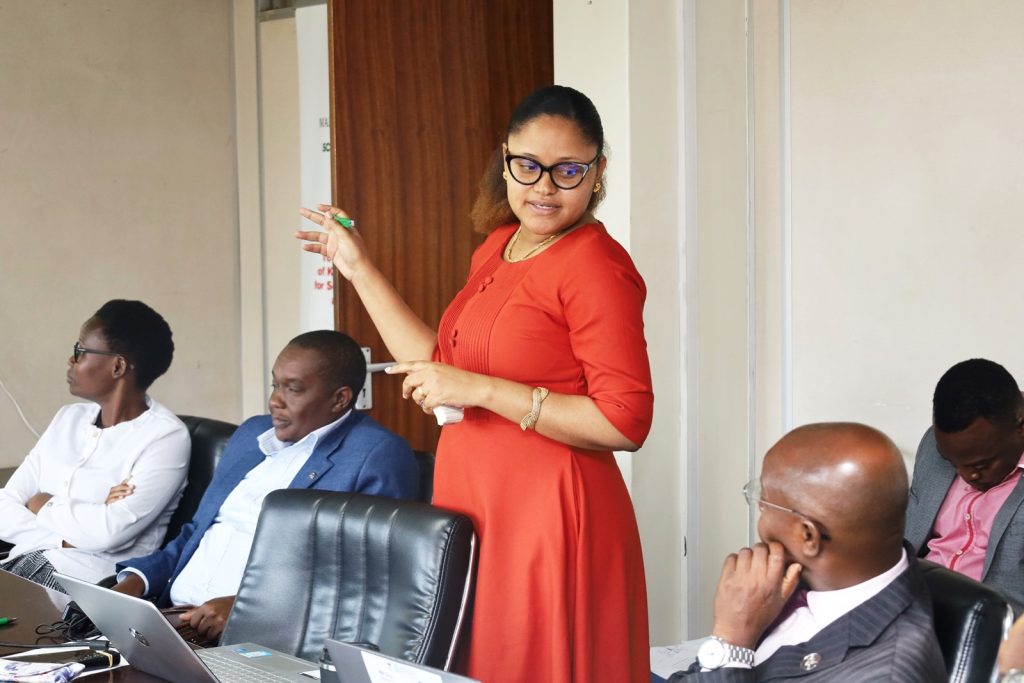
The other threat and defining features of the lake’s water according to Dr. Taylor is eutrophication, poor water visibility, dramatic changes in nutrients, and hypoxia, resulting to a massive loss of biodiversity.
The deteriorating water quality was attributed the discharge of untreated municipal waste, industrial effluents, urban surface contaminated runoff, organic and inorganic waste for intensive agricultural activities, and municipality sewage.
To promote the sustainable use of the basin, Dr. Taylor submitted that Government of Tanzania signed various protocols and treaties with other partner countries, participates in regional organizations such as LVFO, formulated national legal and regulatory framework and established national agencies to facilitate the sustainability of the Basin. GoT also collaborates with development partners in promoting sustainable use of the Basin, fosters Local community awareness creation and engagements, and
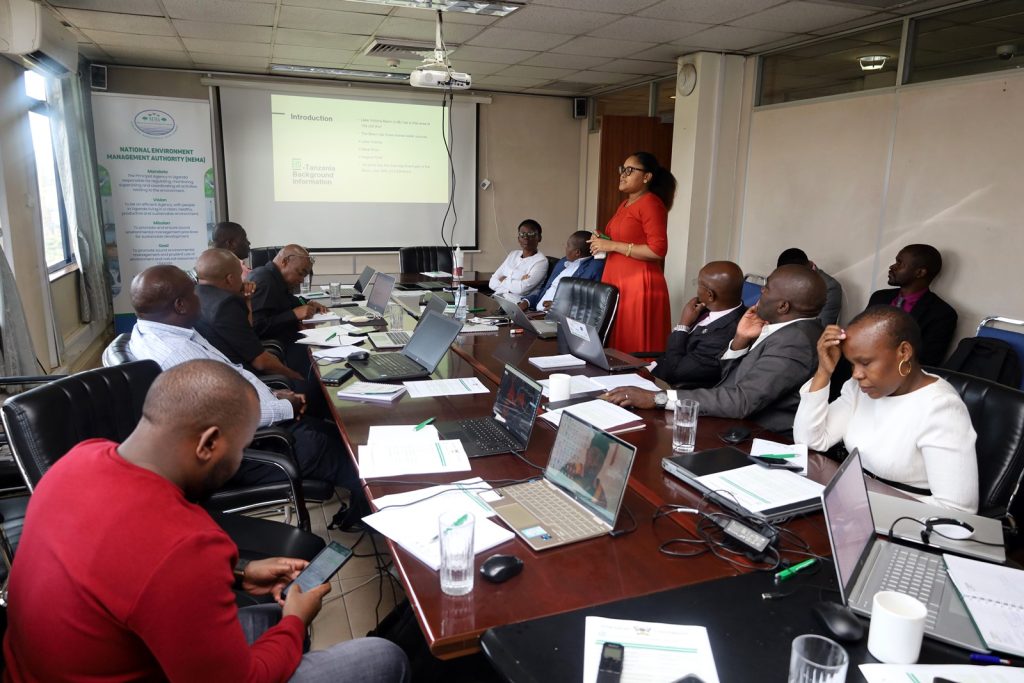
Increased women’s participation in managing the basin’s resources.
Dr. Taylor however said, despite being signatory to regional and international protocols , illegal fishing leading to reduced fish stocks and water pollution leading to loss of biodiversity are the persistent challenges
Key findings from the national policy dialogue attributed the persistent challenges to unharmonized policies e.g., Diverse policies and strategies about various sectors, such as agriculture, fisheries, water, and tourism, may have conflicting objectives.
Other factors are the Inadequate implementation and loopholes of the existing legal and regulatory frameworks, Lack of a common objective and vision among the key players, Growing poverty among the locals and limited alternative sources of living among local people and the open access nature of the fishing activities.
“Harmonizing regional and national Policies, Laws, and Regulations can help establish consistent frameworks for sustainable management.
We also need to think about enhancing economic empowerment of local communities and stakeholder engagement (academia, private sector, etc.) and involving local communities in decision-making can enhance awareness creation and a sense of ownership of the basin’s resources”, Dr. Taylor submitted
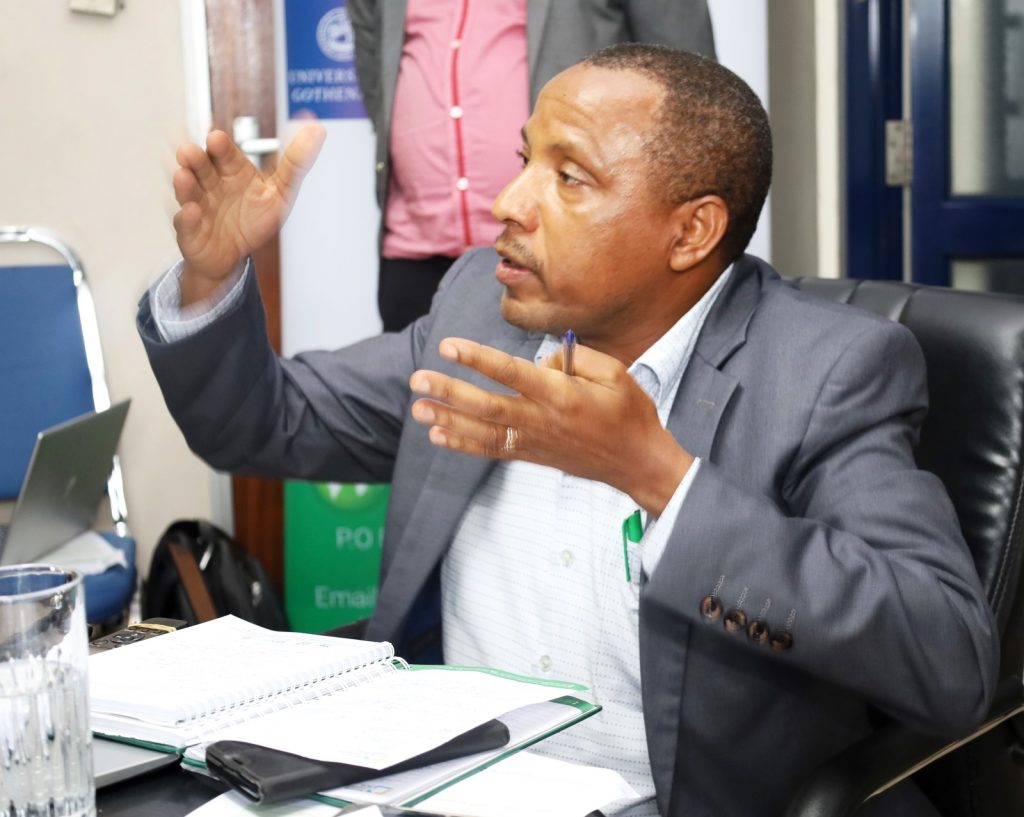
See the detailed EfD Tanzania presentation at the bottom of the page.
Expand the horizon of your economics and put the economic value on every resource, ED NEMA to EfD Centers
The Executive Director NEMA Dr. Akankwasah Birerega underscored the role of the EfD initiative as the way to go on reason that quiet often the obstacles of the environment come from development and thus one cannot separate environment from development and vice versa.
“Environment for development is a very important initiative for pushing sustainable policies advocacy and making a case for conservation using the economic lens because most of the decision makers understand the economic lens faster than the ecological lens.
When you translate ecological lens to the economic lens, it is the same message but it will move faster.
If you say this forest is very important for rainfall formation and air we breathe, everybody will take it for granted as the usual talk of environmentalists. But if you give them what cost they will incur when the forest goes away, the message will sin faster.
When you tell people that air pollution will increase public expenditure on health management, the message moves faster than saying the air is bad. So we need economics to communicate environment because the most policy architects and policies in Africa are based on economics”, Dr. Birerega explained
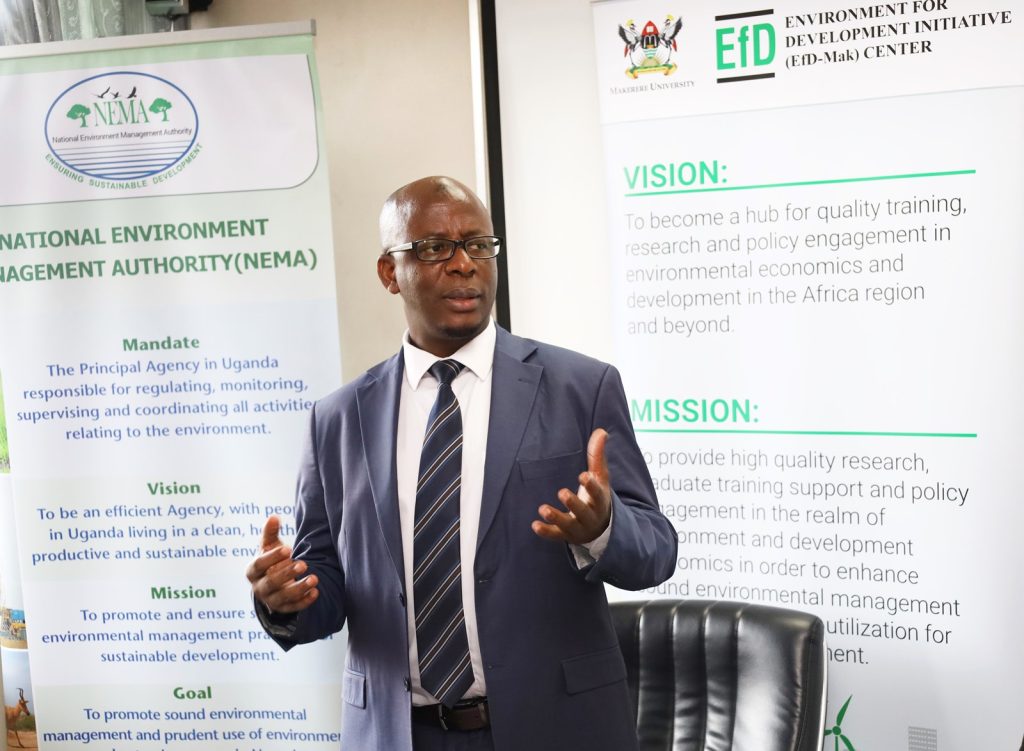
He urged the EfD centers to to use the niche, ability and establishment they have to lead the shift to enhancing the broadness with which economics is looked with by expanding the horizon of economics to begin putting the economic value on every resource in environment be it water, air, pollution etc.
“Economics for development is a very significant vehicle for us to transform the way we look at things and therefore as NEMA we pledge our total commitment to working with you in delivering the objectives of economics for environment sustainability and development because there are no alternatives to that.
You cannot preach the gospel of ecology alone and succeed because development must happen. We should not look at development as brick and mortar and concrete but in a holistic manner”, NEMAs ED asserted.
Dr. Birerega expressed willingness to participate in the development and popularization of the policy paper arising from this dialogue noting that nationally and globally there is now a fair understanding of the value of environment due climate change, biodiversity loss and increasing levels of pollution.
“It is clear that you cannot ignore environment issues and continue talking about development. We ignored environment, it went silent and started fighting for itself and when it starts fighting, it always wins and so our politicians now have a fair view of the importance of the environment at national and global level”, He added.
He expressed hope that they no longer go through a lot of hustle to convince people for environment resources, the reason why there is a Climate Financing Unit in Ministry Finance, Planning and Economic Development.
Short, midterm and long term propositions during the plenary discussions
- The need for further scientific studies into the issues affecting LVB.
- Have a database where information concerning the LVB can be maintained and looked at what happens 10 years ago to inform policy.
- Involvement of local communities in the management and protection of natural sciences as the users.
- Enhance capacity building in water science to monitor how the seas and lakes behave.
- Using science to inform policy frameworks and devise means to invoke governments to use science informed policies.
- Public participation in environmental related dialogues and utilization of local knowledge to protect the LVB and move away from academic ranks.
- Harmonization of policies on alternative livelihood alternatives to reduce dependence on nature eg price of electricity and Gas to reduce use of wood fuel.
- All policies must have the policy action in order to achieve the objectives.
- Governments should incentivize local communities to protect lake shores and curb illegal fishing.
- Emphasize ENR valuation and enforcement.
- Environmentalists should make arguments based on science to address environmental problems eg if sedimentation continues, for the next so years the lake will dry up, given the magnitude of pollution.
- Governments should adopt participatory approach to start from local communities to the ministries.
- Extend the mandate of the LVB to all East African water bodies including Burundi and Rwanda for better implementation.
- Revisit national policies on offering certificates for residential, hoteliers and industries in fragile ecosystems to avoid double standards.
- Address the issue of sedimentation to national leaders and point out that in countries like Chad, a lake disappeared.
- Make a case for Uganda’s Presidential directive banning charcoal use that it shows good political will. However, there is need to provide alternative survival mechanism for communities to succeed e.g. how affordable is LPG gas and electricity.
- Countries should form technical committees to visit other countries to learn the best practices.
- Discussion on LVB should be promoted around the East African level under the Natural Resources Commission to gain political will.
- Investing institutional capacity building to provide ENR Valuation.
- Gazeting wetlands and enhancing public awareness for enforcement to be successful.
- Think of mechanisms to win political will to fight selective enforcement of the law.
- Government should address the issue of sewerage systems and waste management near water sources and adopt sanitary dumping sites.
- Strengthening existing partnerships within the country and across boarders and borrow best practices from neighbors, and bring resources together.
- Need to devote efforts in financing chapter and resource mobilization beyond governments and donors for long term financing for LVB policy implementation and capacity building.
- Establish village committees to participate in project evaluation and check on performance indicators.
- Evoke the education system in the region to build real patriotism from primary on importance of natural resources and the need to preserve it for the next generation. Borrow from Germany the sense of ownership of natural resources. Most education level of the population fishing in East Africa is more concerned with making super normal profit not the health and future of the stocks.
- Institutional strengthening to enhance implementation of regional instruments to manage natural resources and Biodiversity.
It was agreed that a writing team is constituted to synthesize the research findings from the three countries and come up with a single document written in simple language that policy makers can easily appreciate.
Later on, members would convene virtually in a webinar and further synthesize that paper for use as a policy brief or advocacy tool for sharing with government entities.
Given the opportunity, the policy paper will be presented to committees of parliament and other stakeholders. At the same time, EfD Tanzania, residing in a country hosting the East African Parliament in Arusha, will seek an opportunity to articulate the issues in the East African Parliament to promote awareness on LVB, converse political support and inform policy making.
Jane Anyango is the Communication Officer, EfD-Mak Centre Uganda.
You may like
-


Simplicity, Service & Scholarship: Hallmarks of Professor Livingstone Luboobi’s Legacy
-


EfD-Mak Holds 2nd Advisory Board Meeting: Charts Path for Growth
-


Public University Legal and Accounting Officers Trained on Governance and Compliance
-


Celebrating the Life of Prof. Livingstone Sserwadda Luboobi
-


Fare Thee Well Prof. Luboobi
-


Strengthening Grants Management Through Institutional Collaboration and Capacity Building
Agriculture & Environment
Mak Moves to Revitalize Food Technology & Business Incubation Centre to Drive Innovation & Entrepreneurship
Published
5 days agoon
July 14, 2025By
Mak Editor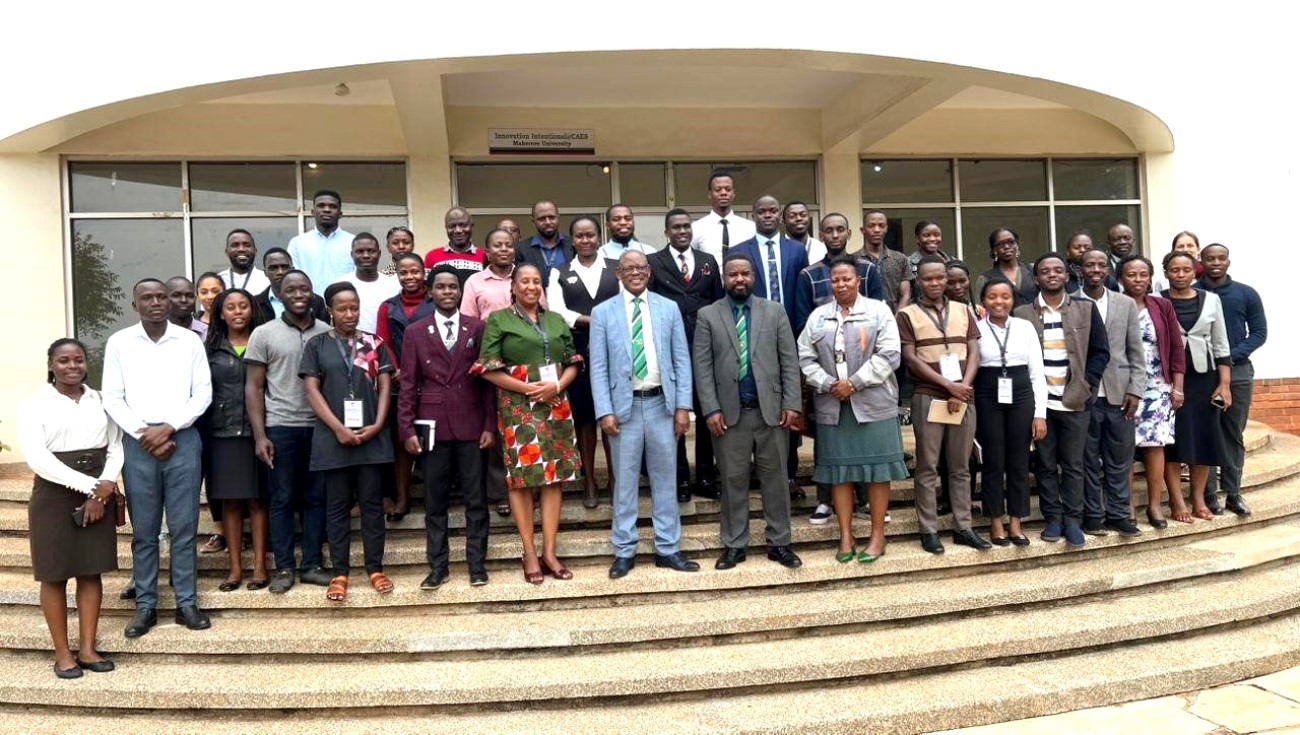
By Ssembogga Derrick
Makerere University marked a significant milestone on Thursday, 10th July 2025, with the launch of the revitalization programme for the Food Technology and Business Incubation Centre (FTBIC). This initiative is poised to position the FTBIC as a national hub for food innovation, student enterprise development, and agro-industrial transformation.
Hosted under the School of Food Technology, Nutrition and Bioengineering (SFTNB) at the College of the Agricultural and Environmental Sciences (CAES), the revitalization of the FTBIC is intended to bridge the gap between academia and industry. “We aim to achieve this by supporting food-based start-ups, enhancing graduate entrepreneurship, and promoting the commercialization of research,” Dr Julia Kigozi, Dean, SFTNB explained. The project receives critical funding from the Makerere University Research and Innovations Fund (MakRIF), which consistently supports innovation and research-based development at the university.
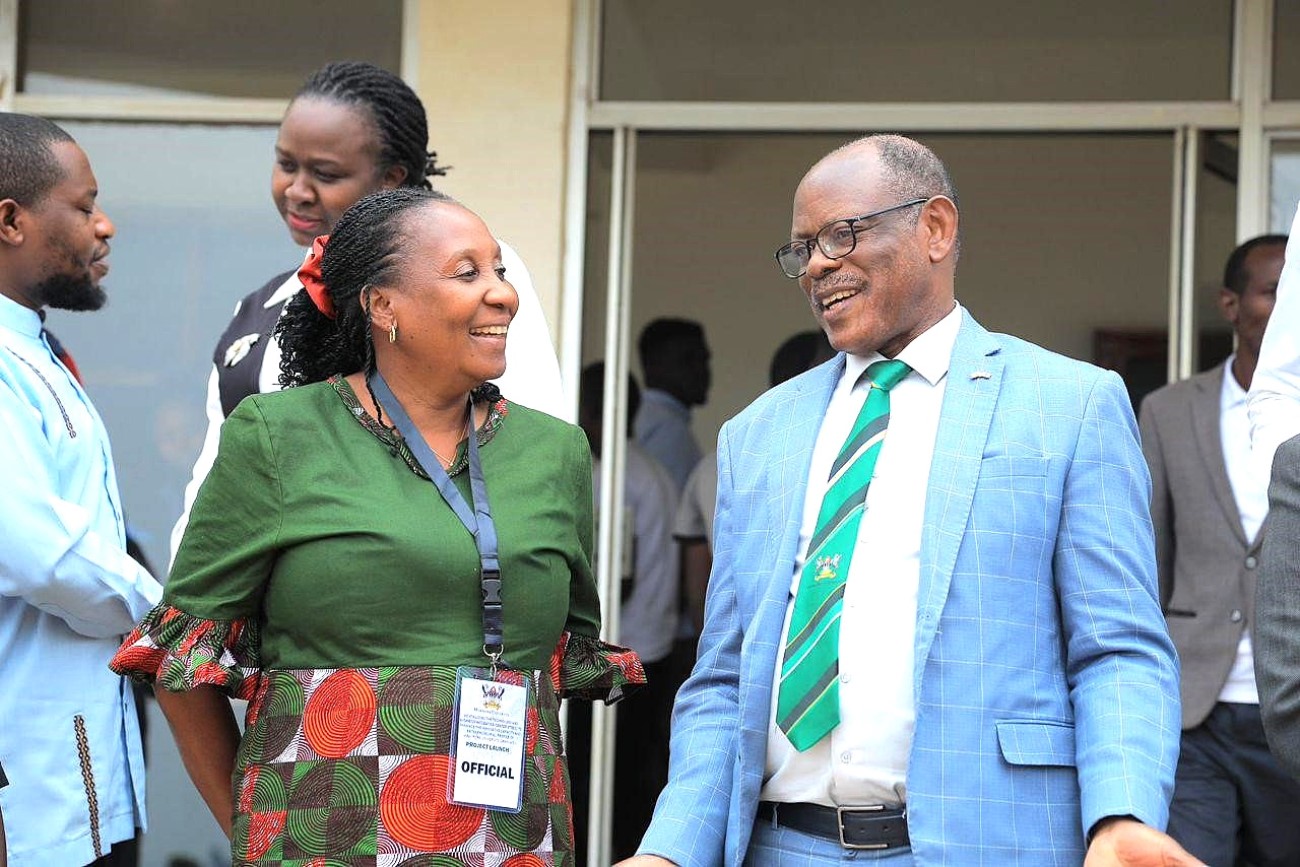
Unveiling a New Strategic Vision
The event, held under the theme “Revitalizing FTBIC to Unlock Innovation and Entrepreneurship Potential among Makerere University Graduates”, marked the official launch of the Centre’s revitalization programme to key stakeholders. It featured the presentation of FTBIC’s new strategic vision and direction, highlighting the commitment of the institution and its partners to fostering graduate entrepreneurship and innovation in food systems. The event also aimed to raise awareness of the Centre’s crucial role in supporting industry, research, and national development.
Participation of stakeholders
The launch attracted a vibrant and diverse audience of over 50 participants. Among the attendees were student representatives; partners from other incubation centers both within and outside Makerere University, including MIIC, UNIPOD, and DGI; as well as representatives from national innovation stakeholders such as Uganda Industrial Research Institute (UIRI) and StartHub Africa.
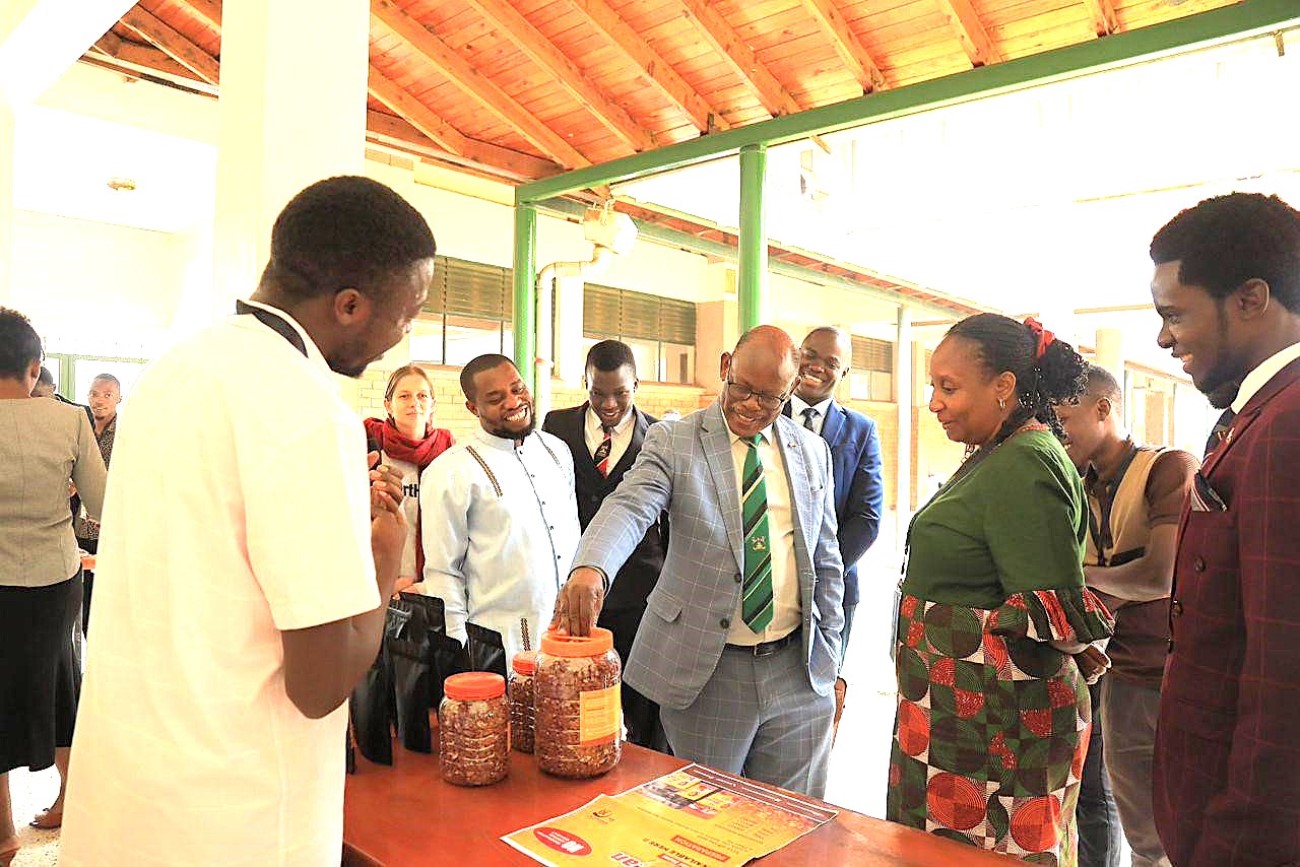
Most notably, the event was honored by the presence of the Vice Chancellor of Makerere University Prof. Barnabas Nawangwe. The Vice Chancellor commended the revitalization efforts, acknowledging the Centre’s immense potential to incubate hundreds of food-based start-ups and create employment opportunities for thousands of graduates. “The Centre is now well-positioned to become a flagship platform for innovation, employment creation, and agro-industrial development in Uganda and beyond. Makerere University remains committed to supporting such initiatives that align with national priorities and global development goals.”
The event featured the unveiling of the operational framework for the revitalized Centre, highlighting its commitment to innovation, entrepreneurship, and practical graduate training. Stakeholders in attendance expressed enthusiasm and pledged support for future collaboration, research, and product development initiatives aligned with national development priorities. The event also provided a platform to deepen partnerships with private sector actors and development organizations, reinforcing confidence in the Centre’s potential to serve as a national model for university-led incubation.
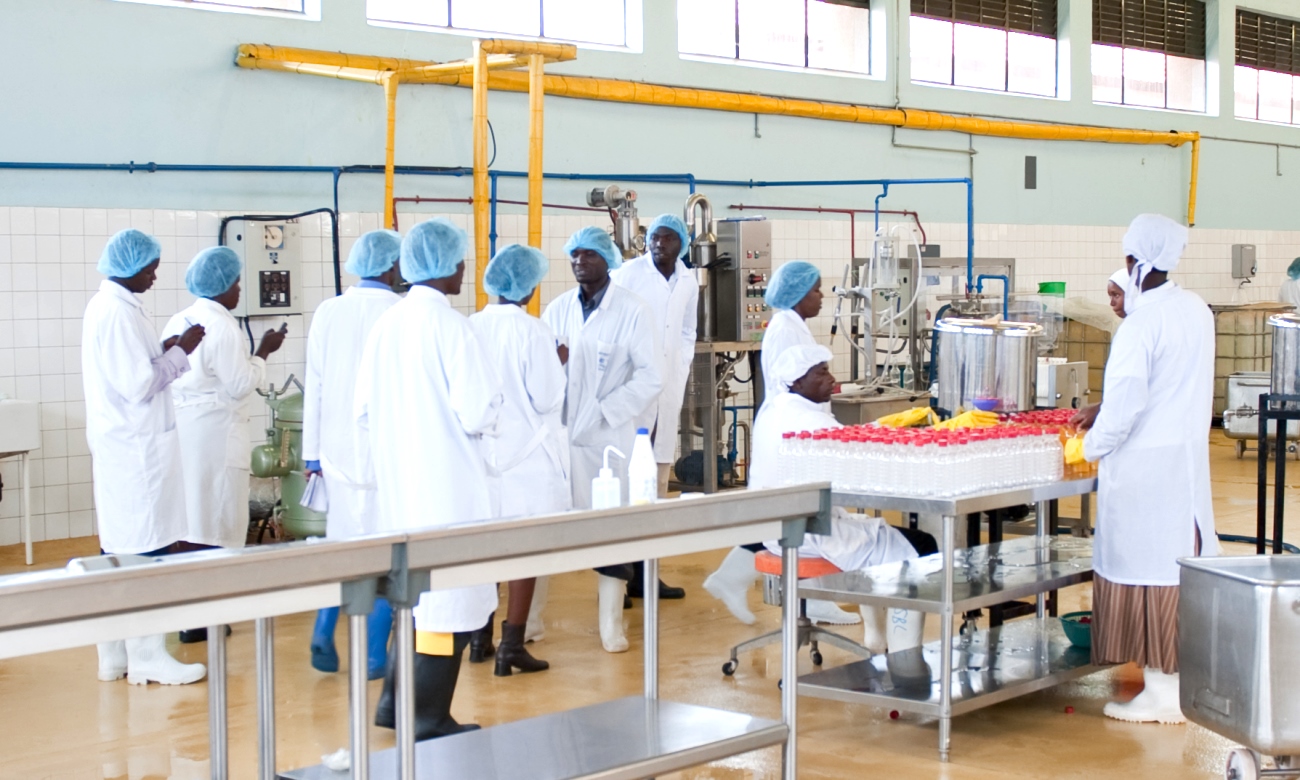
Agriculture & Environment
SophiA Project Upgrades Medical Infrastructure at Buvuma Health Centre IV, Trains Technicians for Maintenance Works
Published
1 week agoon
July 9, 2025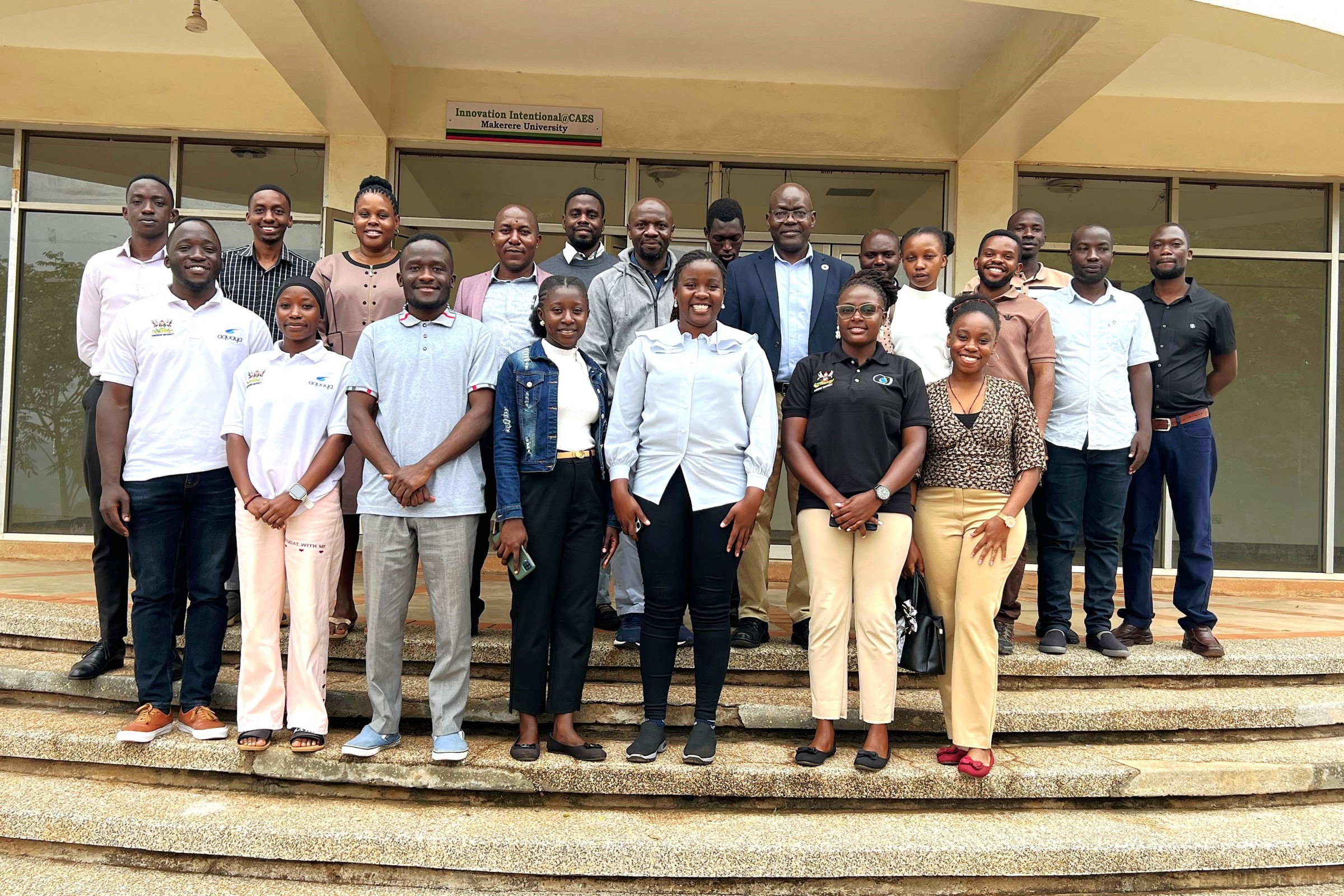
Overview of the Sustainable Off-Grid Solutions for Pharmacies and Hospitals in Africa (SophiA) Project
Despite ongoing urbanization across Africa, the majority of the population still resides in rural and remote areas, where infrastructure development remains limited. These regions face significant challenges such as lack of access to healthcare, education, clean water, and reliable electricity, contributing to higher rates of illness and poverty compared to urban centres. According to reports, Sub-Saharan Africa has approximately 120,000 public health facilities (22,000 hospitals and 98,000 health posts), of which around 26% lack any electricity access, and only 28% have reliable power supply.
Access to good healthcare is critical for sustainable development. However, many rural medical centres operate under harsh conditions – using polluted water, lacking cooling for medicines, and facing poor sanitation – largely due to unreliable electricity and water supply. Although half of the population in Sub-Saharan Africa lacks electricity, the region has abundant renewable energy potential that can be effectively harnessed through off-grid solar photovoltaic (PV) systems.
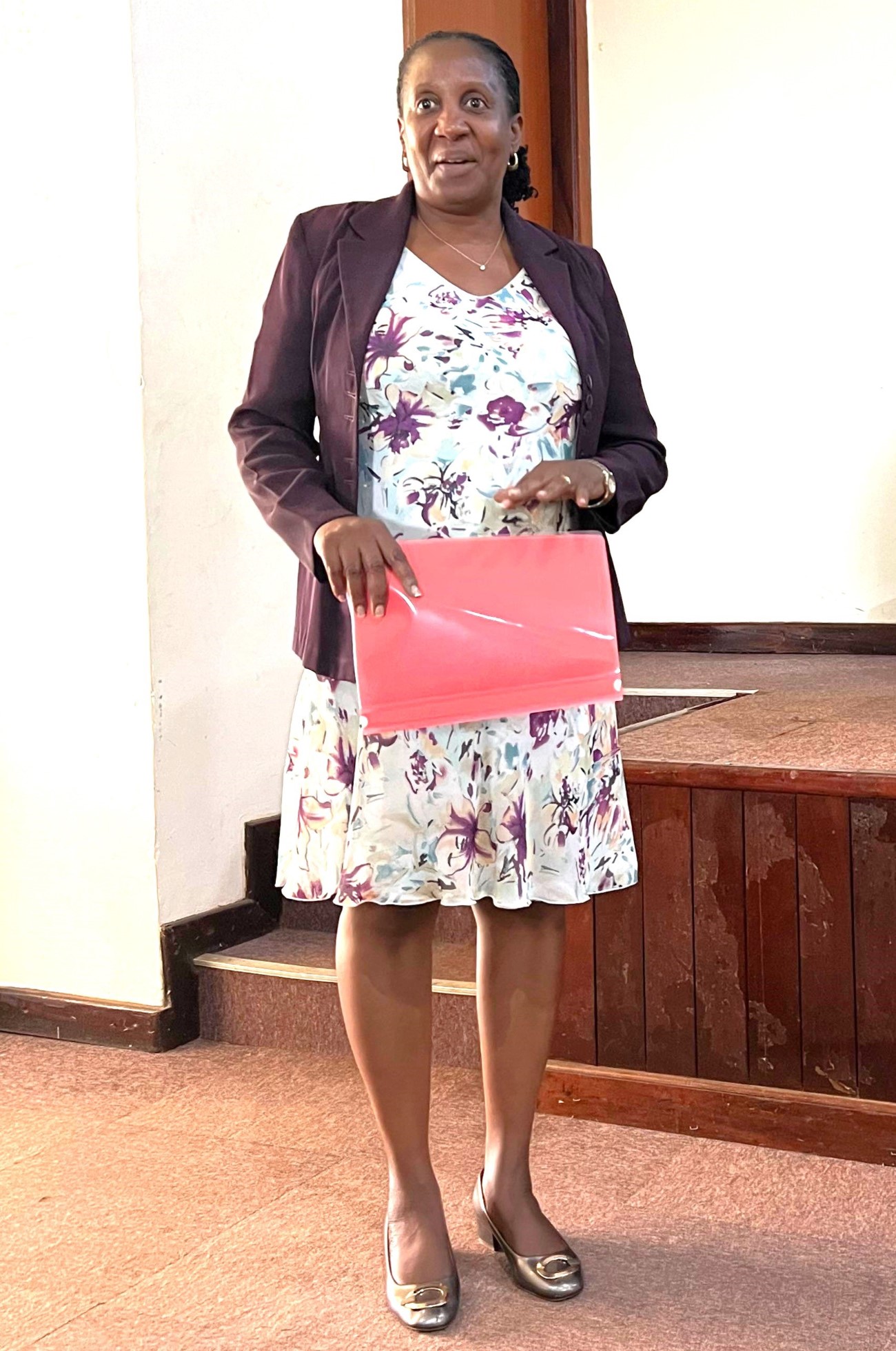
To address the above-mentioned challenges facing the African Continent, Makerere University in partnership with 13 organizations across Europe and Africa developed a project titled, “Sustainable Off-grid solutions for Pharmacies and Hospitals in Africa (SophiA)”. The five-year project that began on 1st October 2021 is funded by the European Union (Project: 101036836 – SophiA – H2020-LC-GD-2-3-2020). At Makerere University, the project is coordinated by Dr. Nicholas Kiggundu, Associate Professor in the Department of Agricultural and Biosystems Engineering, College of Agricultural and Environmental Sciences (CAES).
Piloted in Burkina Faso, Cameroon, Malawi, and Uganda, SophiA aims to provide sustainable off-grid energy solutions to rural and remote health facilities, fostering economic growth and ensuring equitable access to energy and healthcare. Using various technologies, such as photovoltaics, solar thermal, electrical and thermal storage, water treatment and natural refrigerants with low global warming potential, SophiA has developed and manufactured locally innovative, modular, affordable and efficient solar powered systems for providing:
- Safe and clean drinking water, free of bacteria and viruses, and deionised water for medical purposes;
- Hot water and steam production for thermal requirements of the hospitals;
- Cooling of medicines and food at +5°C;
- Low temperature storage of blood plasma and vaccines at -30°C;
- Ultra-low temperature storage of sensitive medication (e.g. some Covid-19 or Ebola vaccines) at -70°C.
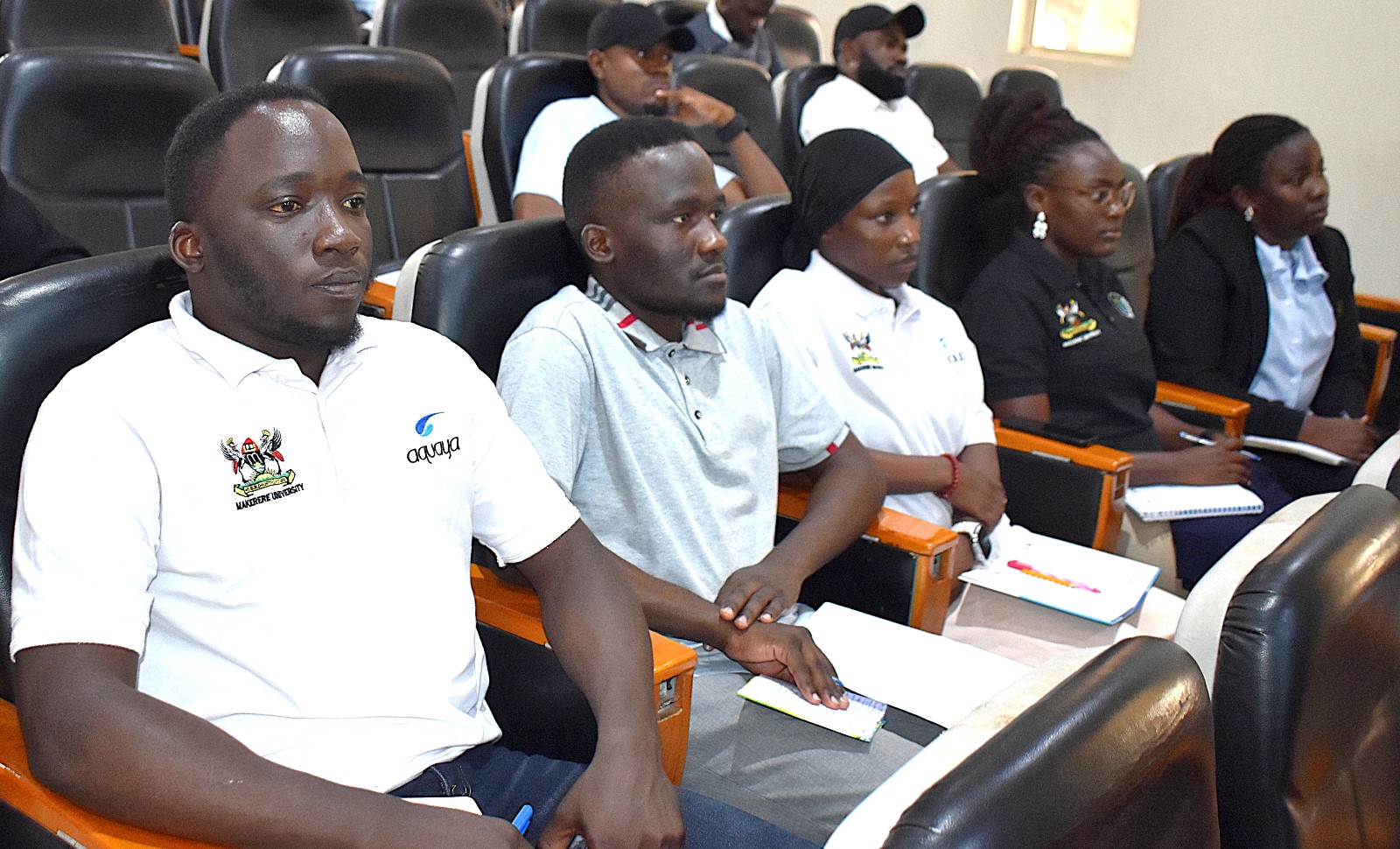
In addition, PV MedPort, a simple and 100% solar-powered solution has been developed and tested as a mobile health care station in small remote areas in 4 different geographical conditions in Africa. The SophiA system has been manufactured in Africa and will provide, for the first-time, innovative solutions based on climate-friendly natural refrigerants to cover cooling demand for three different temperature ranges (-70°C, -30°C and +5°C). The system has been tested and demonstrated at four rural hospitals in remote regions throughout the African continent covering the major geographical regions and different climatic conditions in Burkina Faso, Cameroon, Malawi and Uganda.
SophiA Project initiatives in Uganda
In Uganda, all Health Centre IV hospitals with surgical theatres have been connected to the national grid except Buvuma Health Centre IV, which serves over 120,000 people scattered across 52 islands. Recognizing this gap, the Ministry of Health selected Buvuma Health Centre IV for the SophiA project to demonstrate sustainable off-grid solutions.
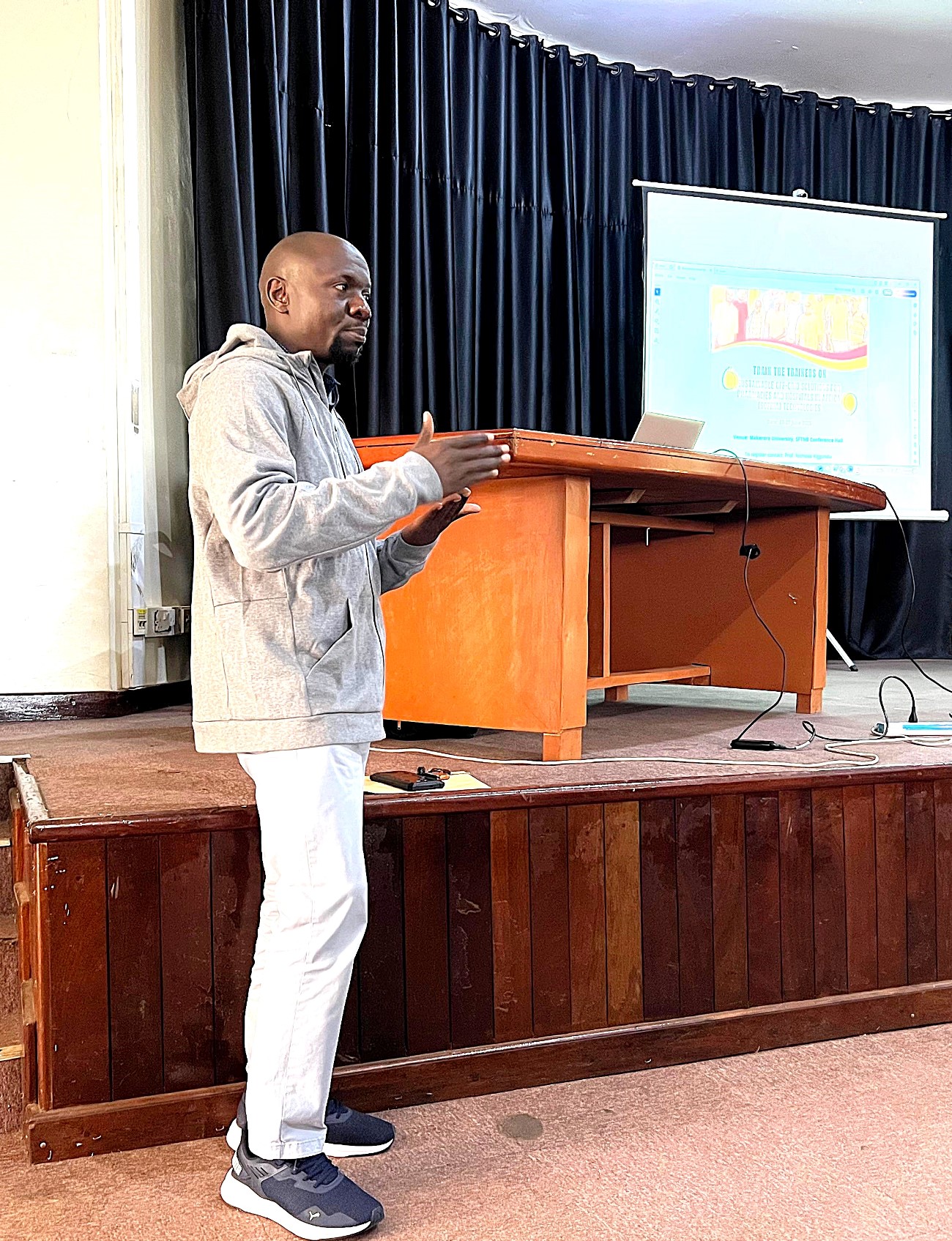
The SophiA System at Buvuma Health Centre IV provides the following services:
- Off-grid electricity supply
- Safe, clean drinking water for patients, staff, and the community
- Hot water and steam systems crucial for maternal care
- Solar-powered cooking and meal preparation
- Cooling systems for surgery and intensive care units
- Refrigeration for medicines at +5°C, blood plasma storage at -30°C, and ultra-low temperature storage (-70°C) for sensitive vaccines such as those for COVID-19 and Ebola
Training of Trainers Workshop
As the SophiA project approaches completion in September 2025, it is vital to establish a skilled pool of technicians capable of handling maintenance and minor repairs of the system components, including solar panels, water treatment units, generators, batteries, and cooking kits.
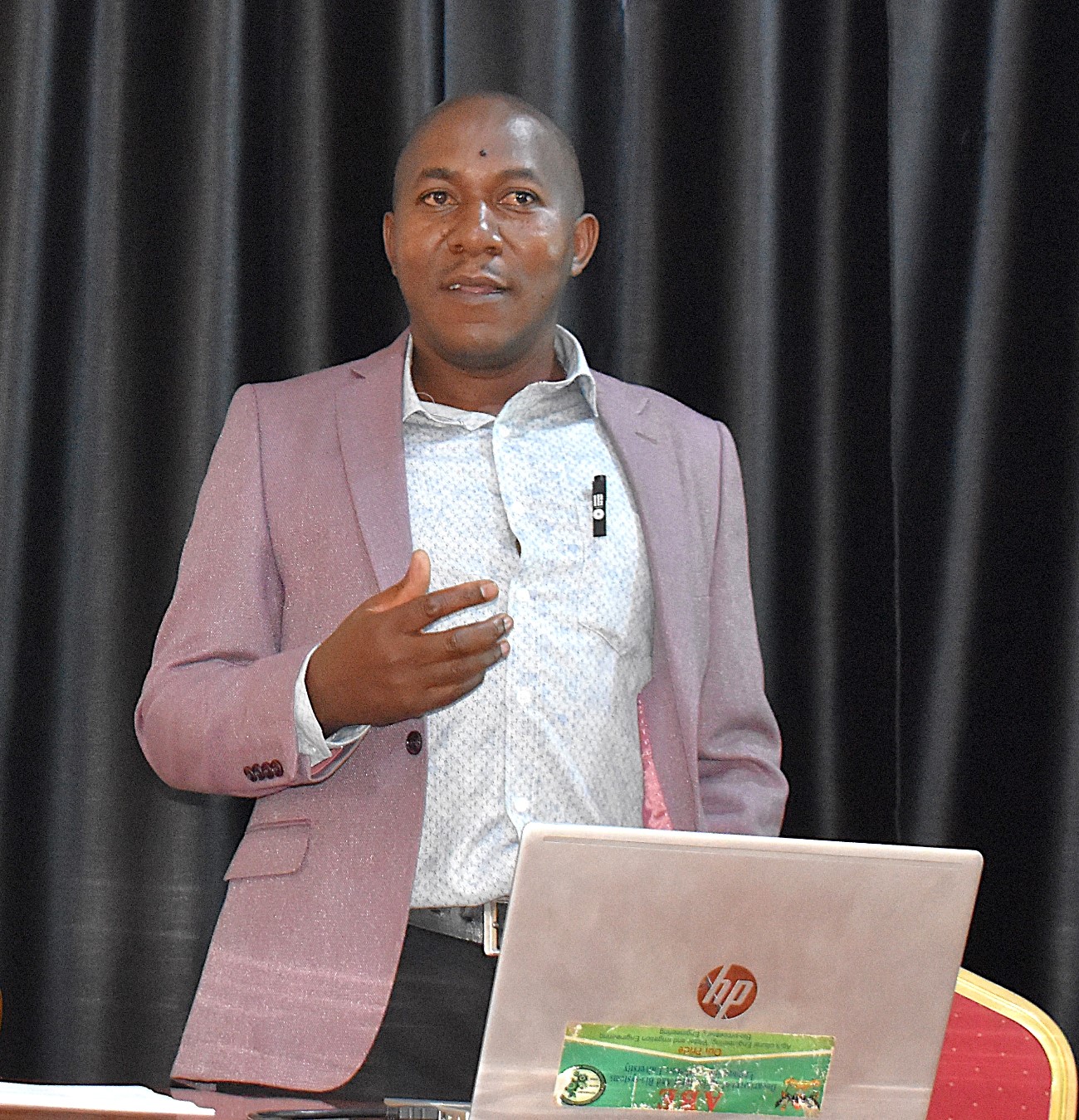
From June 23 to 27, 2025, Makerere University hosted a comprehensive Training of Trainers workshop. The training programme encompassed a diverse range of topics delivered by subject matter experts from institutions, including Makerere University (Department of Agricultural and Biosystems Engineering – CAES, and the College of Engineering, Design, Art and Technology – CEDAT), Hochschule University of Applied Sciences, and Busitema University. Participants were carefully selected from diverse professional backgrounds, including recent engineering graduates from CAES and CEDAT, Makerere University, University technical staff, personnel from Kyambogo University, officials from Buvuma District Works and Health Departments, and electricians from Kampala City. The training sessions were conducted at Makerere University and Buvuma Health Centre IV Hospital.
Training Modules Included:
- Sustainable energy systems and their practical applications
- Energy generation and storage technologies
- Solar water heating: design, operation, maintenance, and performance optimization of solar water heaters, crop dryers, and concentrating solar heaters
- Solar PV technologies in Uganda: cell technology, system design, operations, maintenance, and hands-on practicals for standalone and grid-connected systems
- Public health implications of water quality
- Water treatment and quality management, including protocols, parameters, and case study on the MCDI treatment system
- Water quality testing methodologies
- Introduction to sustainable refrigeration and cooling technologies
- Environmental impact and safety considerations for refrigerants
- Refrigeration cycles and component overview
- Life cycle assessment of SophiA technologies
- Thermal energy storage within the SophiA system
- Steam as a productive energy source
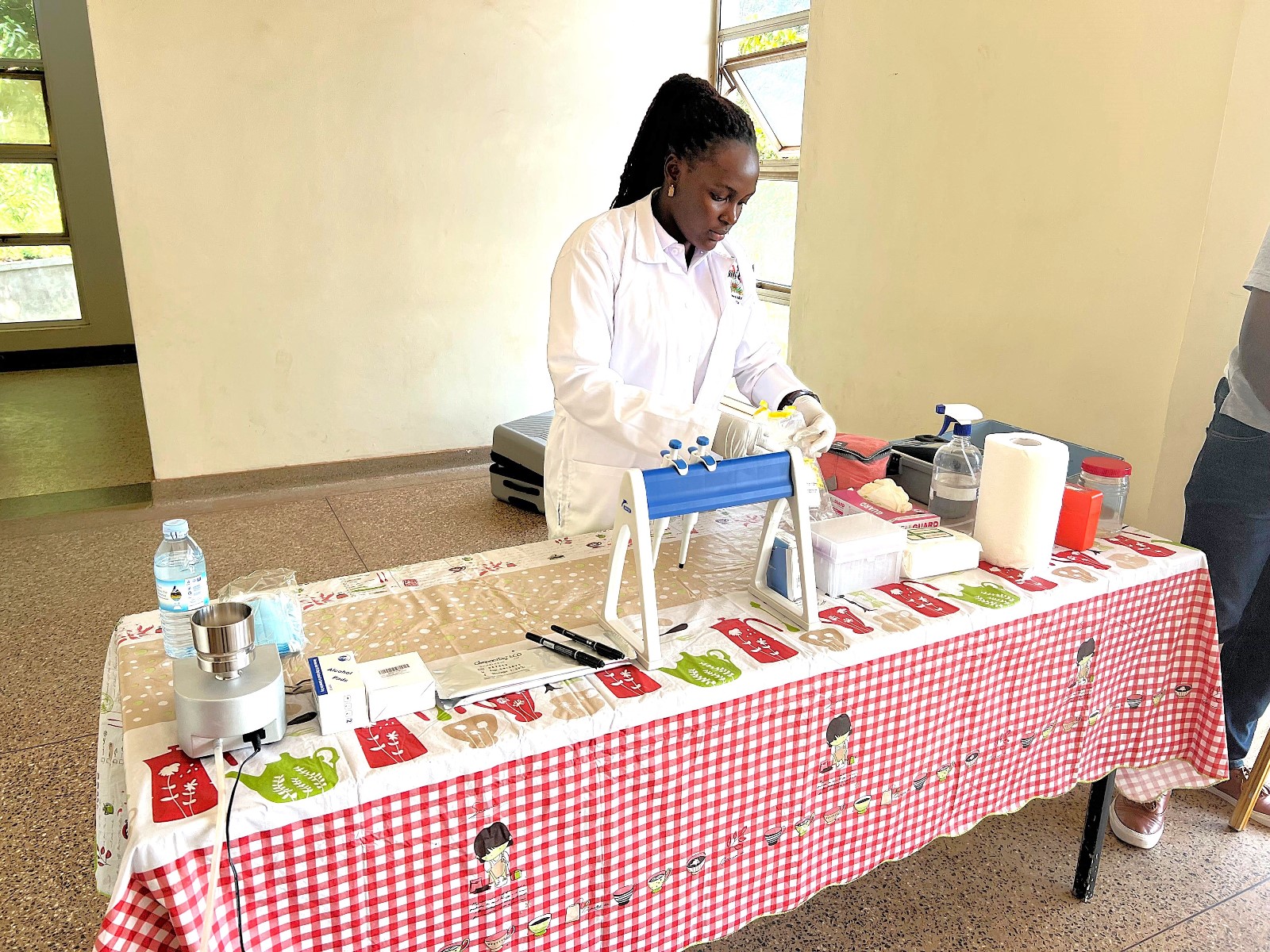
The Training Sessions
Day One: Introduction to foundational concepts in solar energy technologies
The first day of the SophiA Train the Trainers Workshop focused on building foundational knowledge in sustainable and solar energy systems. Led by Dr. Peter Tumutegyereize and Dr. Francis Mujjuni, participants explored a range of technologies and applications critical to clean energy deployment.
Key topics included:
Sustainable Energy Systems: Introduction to renewable energy systems including bioenergy, hydro, wind, geothermal, hydrogen fuel cells, and battery storage.
Solar Radiation & Geometry: Understanding solar constants, irradiance, and the impact of atmospheric conditions on solar performance.
Solar Thermal Technologies: Detailed look at solar water heating systems (FPCs and ETCs), maintenance, sizing, and solar dryers for agricultural and industrial use.
Photovoltaic (PV) Systems: Working principles, types of PV cells, performance factors, and diagnostics. Practical testing techniques and metrics like Voc, Isc, MPP, and PR were discussed.
Simulation & Application: Olivia Nakiwanuka demonstrated a PVsyst-based simulation of a 2.55 kWp standalone system for a conference hall, showing a high solar fraction (97.88%) and low LCOE (USD 0.03/kWh).
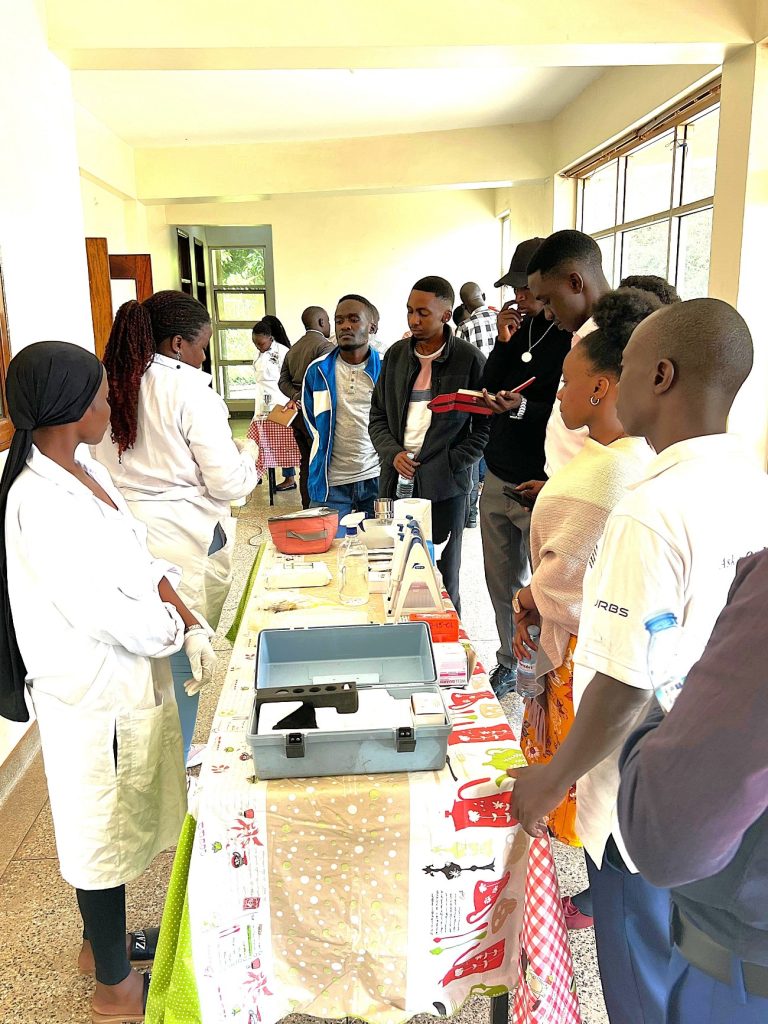
The sessions emphasized practical skills, performance analysis, and real-world application, equipping participants to train others and support solar adoption, especially in rural and off-grid settings.
Day Two: Water Treatment Technologies
The second day focused on water treatment technologies relevant to low-resource healthcare settings. Facilitated by Sneha De and Mr. Duc Dinh Ngoc from Hochschule Karlsruhe University, sessions covered technical, environmental, and operational challenges, with contributions from Dr. Joshua Wanyama on water quality management and Dr. Prossie Nakawuka on practical water testing.
Key challenges addressed included unreliable water supply and contamination in healthcare facilities, emphasizing the need for decentralized water treatment, especially in rural areas.
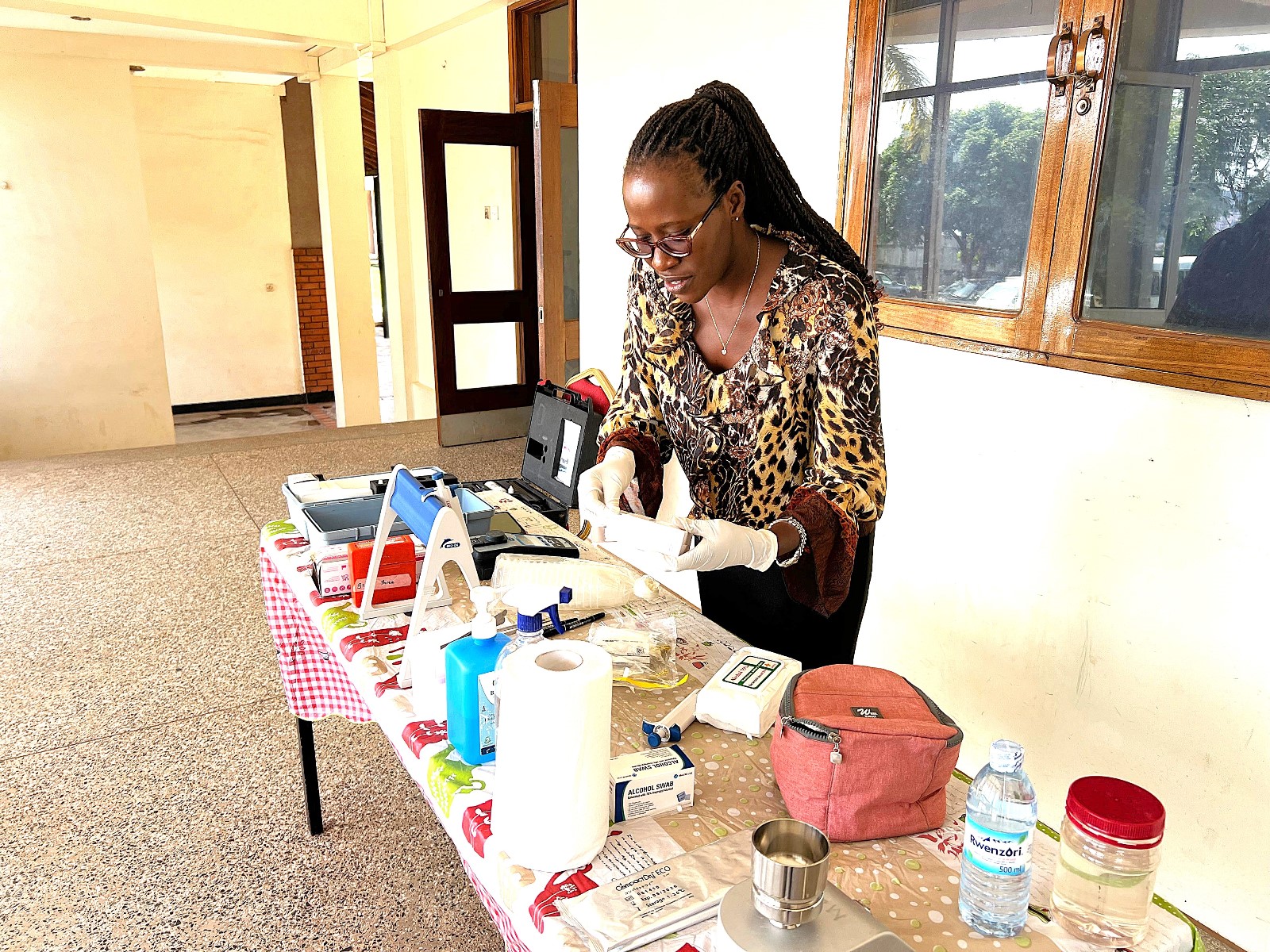
Sneha De reviewed biological and physical/chemical water treatment methods, highlighting technologies such as activated sludge, filtration, membrane bioreactors, and advanced disinfection techniques. The SophiA modular water treatment system, integrating ultrafiltration and membrane capacitive deionisation (MCDI), was introduced as a scalable solution for producing safe drinking and deionised water for medical use.
Mr. Duc Dinh Ngoc trained participants on the MCDI technology, an energy-efficient method for salt and fluoride removal suitable for low-salinity water.
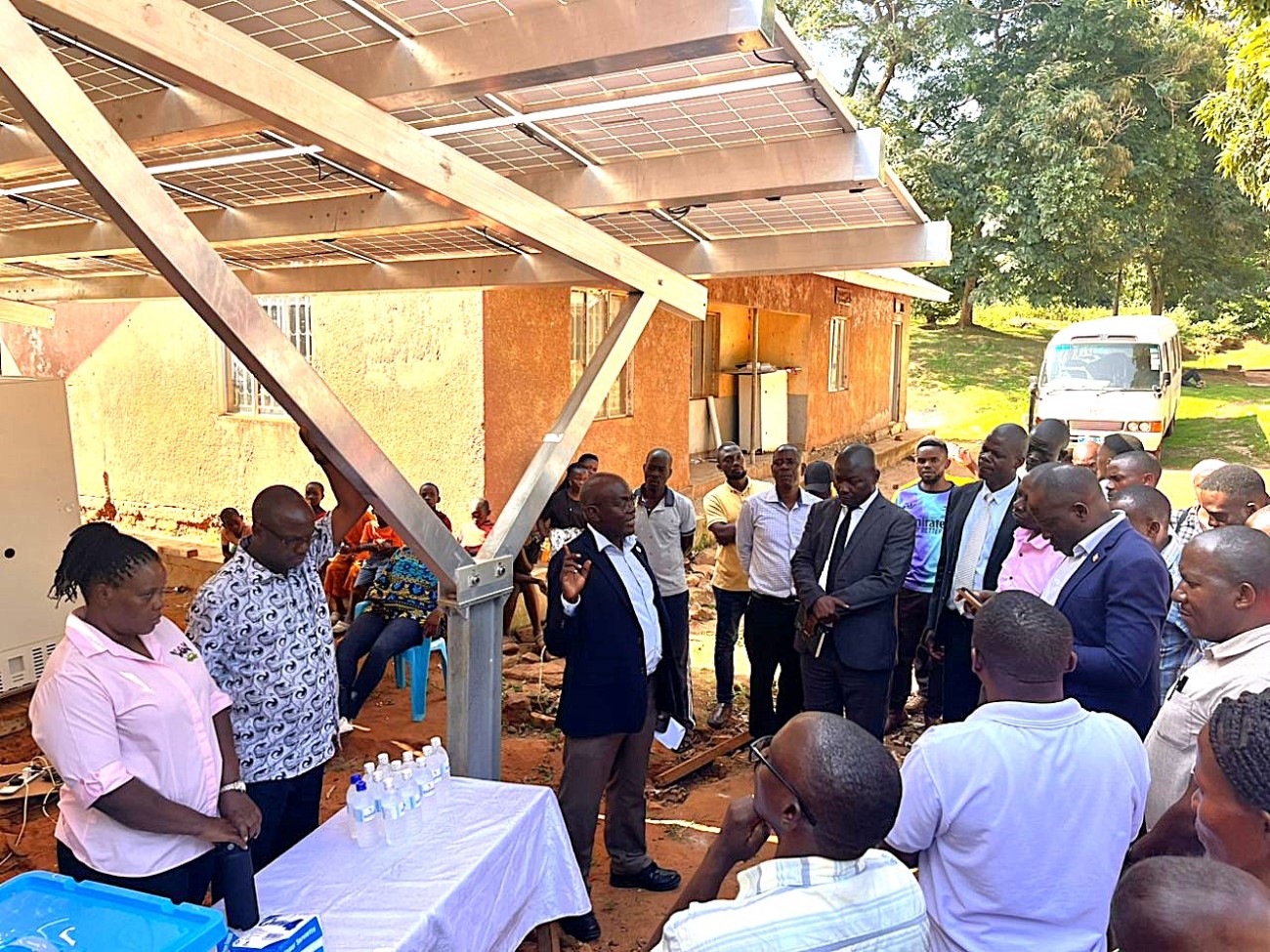
Dr. Joshua Wanyama discussed the water quality management protocols, outlining key physical, chemical, and biological water parameters and monitoring strategies, including modern IoT-based tools, to ensure water safety and public health.
The day concluded with a hands-on lab session by Dr. Prossie Nakawuka, where participants practiced water quality testing using turbidimeters, incubators, and filtration techniques.
Overall, Day Two combined theoretical insights, technology demonstrations, and practical skills, preparing participants to implement sustainable water treatment and quality management systems in healthcare environments.
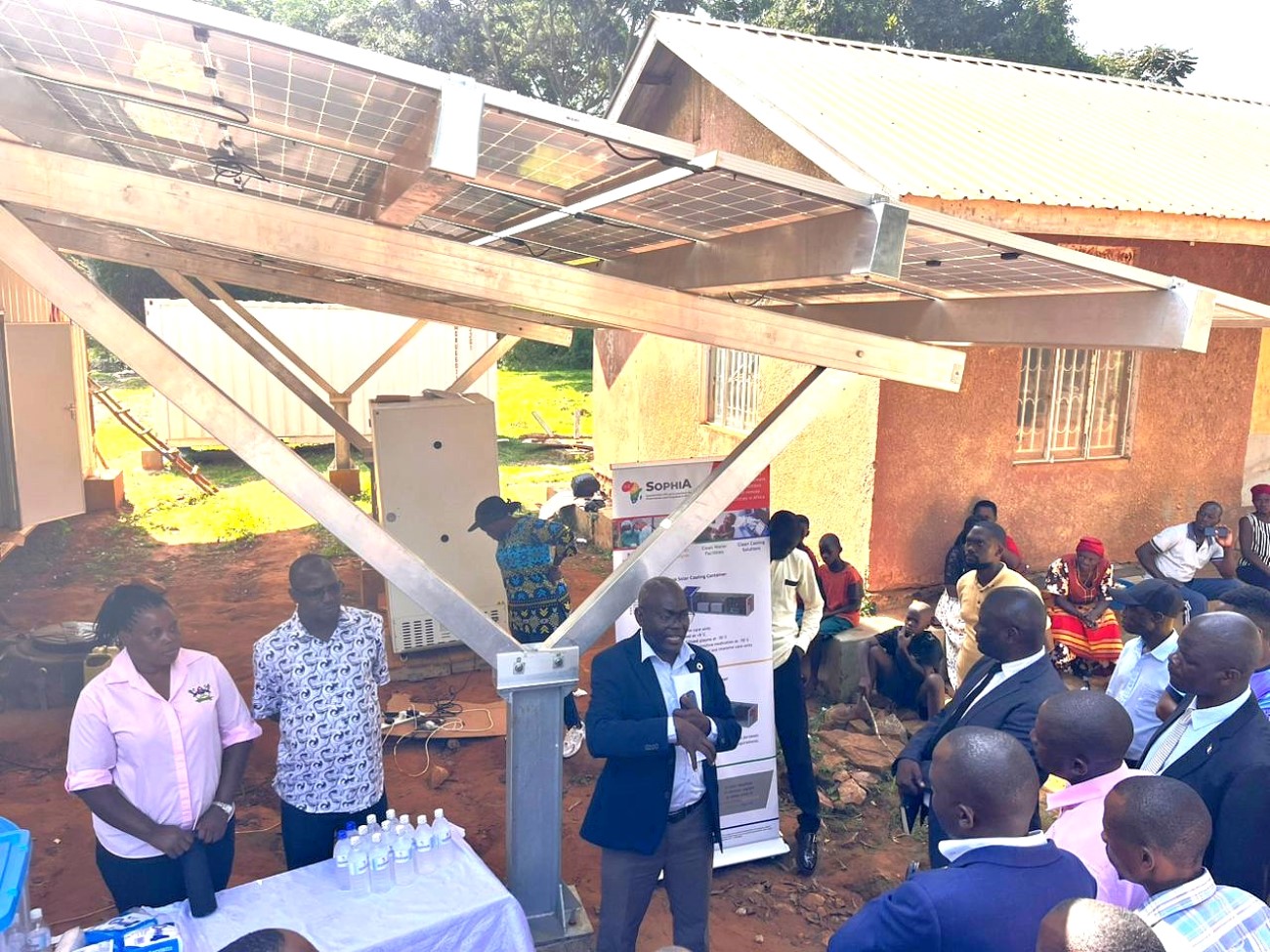
Day Three: Refrigeration and Cold Storage
The third day of the SophiA workshop focused on sustainable refrigeration and cold storage technologies tailored for healthcare in Sub-Saharan Africa. Experts discussed energy-efficient, climate-friendly cooling solutions vital for vaccine storage, medicines, and diagnostics, especially in off-grid and rural settings.
Key highlights included the introduction of solar-powered and biomass-based refrigeration systems, thermal energy storage methods, and the use of natural refrigerants like propane, ammonia, and CO₂ as environmentally safer alternatives. Presentations emphasized the critical role of refrigeration in healthcare and the urgent need to replace harmful chemicals with sustainable technologies.
Sessions covered real-world applications such as the SophiA cooling containers in Burkina Faso, safety protocols for flammable refrigerants, and the environmental and economic benefits of solar refrigeration systems assessed through life cycle analysis.
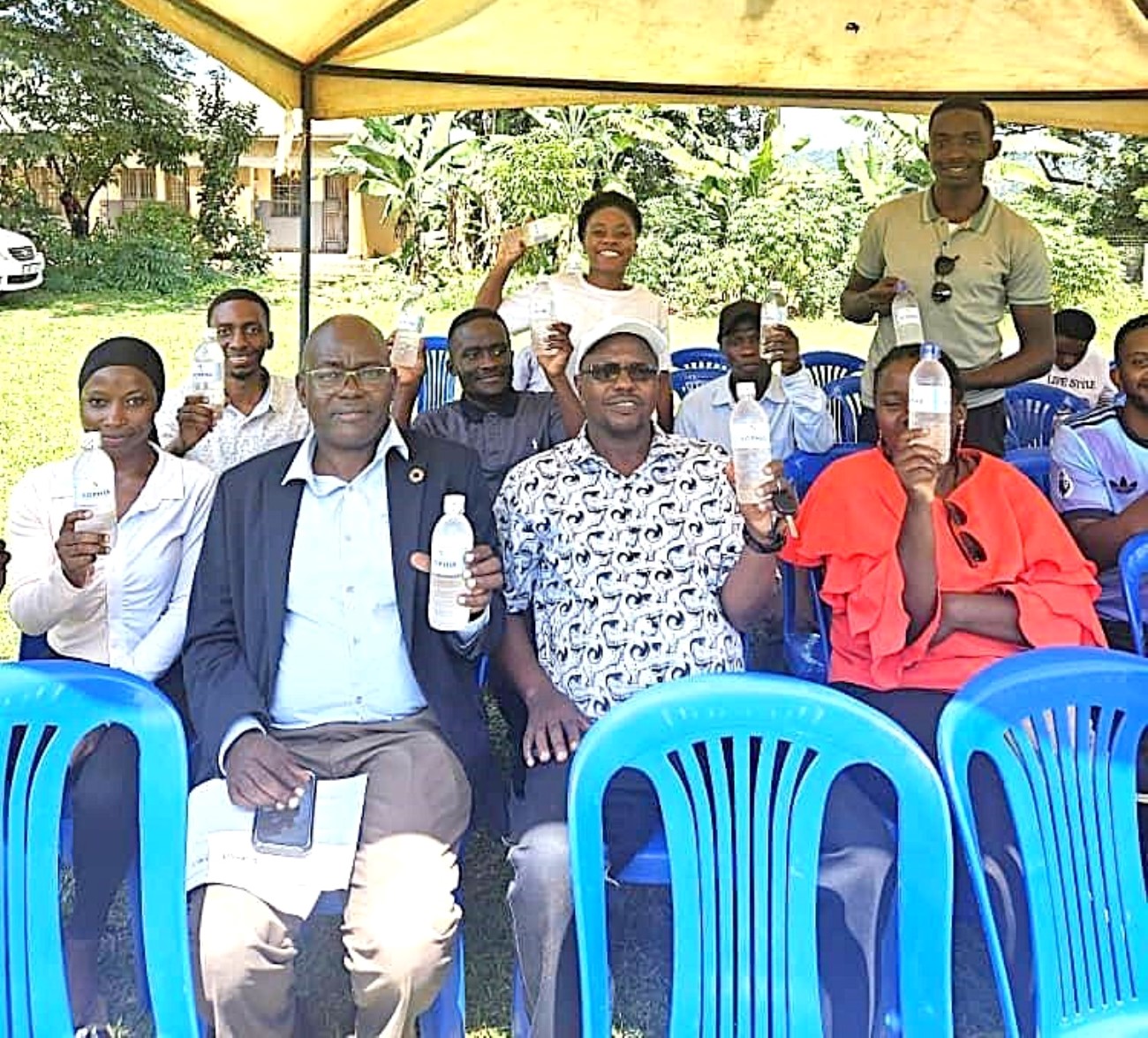
The day ended with an interactive quiz and discussion, reinforcing learning and encouraging participants to apply sustainable cooling practices in their communities.
Day Four: World Refrigeration Day & Field Visit to Buvuma Island
The fourth day of the SophiA Train the Trainers workshop was dedicated to the celebration of the World Refrigeration Day and a field excursion to Buvuma Island, providing participants with a unique opportunity to witness the SophiA system in action. The day was coordinated by Dr. Sarah Bimbona and Dr. Nicholas Kiggundu, who led the delegation to Buvuma Health Centre IV, the pilot site for the SophiA installation in Uganda.
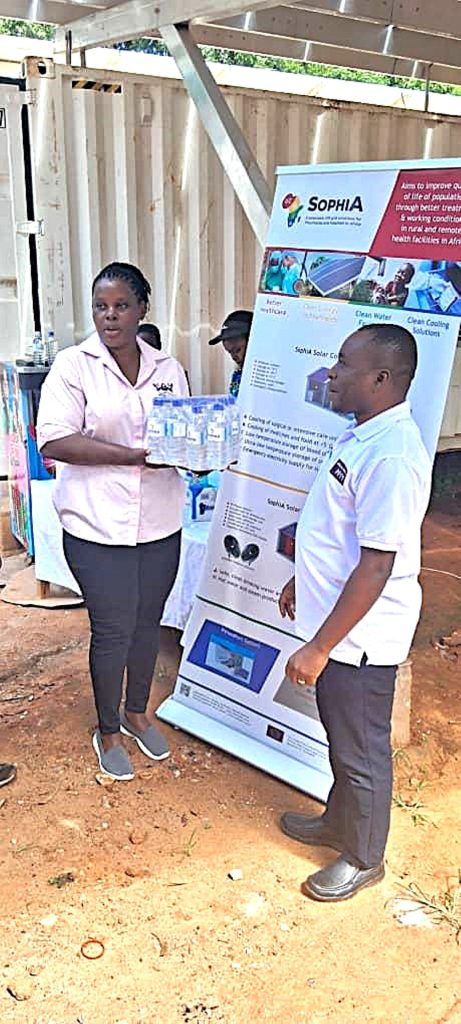
The visit served as both a practical extension of the previous day’s technical sessions and a community engagement event. Participants were able to observe the installed SophiA system, which integrates solar-powered refrigeration, water treatment and steam generation technologies designed for off-grid healthcare settings. During the visit, Dr. Kiggundu provided a detailed briefing to local stakeholders, including representatives from the Buvuma District Local Government, delegates from the Buganda Kingdom, and members of the local community. He explained how the SophiA system will enhance healthcare delivery on the island through reliable cold storage for vaccines and medicines, access to clean drinking water, and steam generated for cooking and use in the maternity wards.
As part of the long-term sustainability plan for the SophiA system, the launch of SophiA Water was announced, an entrepreneurial initiative designed to generate revenue locally for the operation and maintenance of the system.
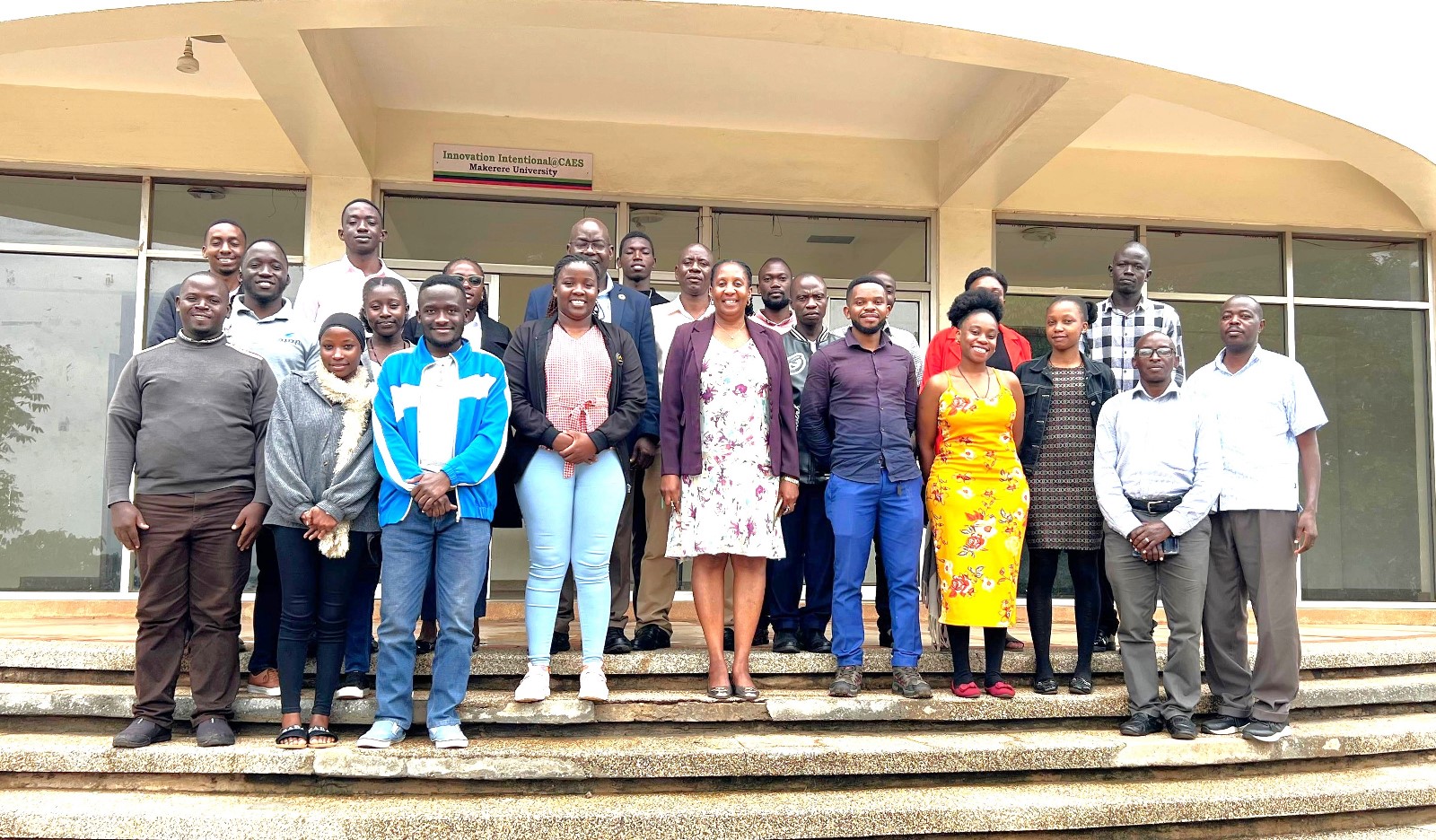
The field trip ended with a certificate awarding ceremony in appreciation of the participants’ dedication and active engagement throughout the training programme.
Agriculture & Environment
APRC Trains Graduate Students & Stakeholders in the Use of the African Agriculture Adaptation Atlas
Published
2 weeks agoon
July 3, 2025
The Agricultural Policy Research Centre (APRC), housed within the College of Agricultural and Environmental Sciences (CAES) at Makerere University, continues to play a pivotal role in shaping Uganda’s agricultural future through evidence-based policymaking. With a mission to ensure that agricultural policies are grounded in empirical research and data, APRC is actively investing in capacity-building initiatives that empower researchers, policymakers, and development actors.
In a significant stride toward building climate resilience in African agriculture, APRC recently organized a two-day intensive training workshop focused on the African Agriculture Adaptation Atlas (AAAA) – a state-of-the-art, web-based decision-support platform that facilitates the integration of climate data into agricultural planning and policy.

The workshop, held on Wednesday 25th and Thursday 26th June 2025 at the School of Agricultural Sciences, Makerere University, targeted two key groups: graduate students on the first day, and university faculty, government officials, and development practitioners on the second. This structure ensured tailored learning experiences for both emerging and seasoned professionals, helping to bridge the gap between academic research and real-world policy implementation.
The African Agriculture Adaptation Atlas (AAAA) is designed to provide dynamic, data-rich visualizations that support informed decision-making in agriculture and food systems across the continent. Through interactive maps and analytical tools, users can explore projected climate impacts, evaluate risks, and identify localized, climate-smart adaptation strategies.

Throughout the sessions, participants received hands-on training in a broad range of AAAA functionalities, including:
- Leveraging the Atlas for research and policy communication: Enhancing the ability of scientists and policy actors to translate complex climate data into actionable insights;
- Assessing projected climate impacts and associated agricultural risks: Essential for forward-looking planning and risk mitigation;
- Identifying climate-smart investment options, with a particular focus on the livestock sector, which is especially vulnerable to climate shocks;
- Analysing gendered vulnerabilities: Examining how climate change disproportionately affects women in agricultural communities;
- Understanding the implications of heat stress on agricultural productivity: Supporting targeted interventions to protect producers and their livelihoods;
- Estimating the economic returns of adaptation strategies: Aiding in prioritizing investments and allocating limited resources effectively.

Prof. Bernard Bashaasha, the APRC Coordinator, emphasized the importance of the training in advancing Africa’s adaptation agenda. “As climate change continues to threaten food security and disrupt livelihoods across the continent, tools like the AAAA, and the skills to use them effectively are essential. They empower decision-makers to craft policies that are adaptive, inclusive, and rooted in science,” he noted.
The workshop was coordinated by Dr. Florence Rwiza, Lecturer in the Department of Agribusiness and Natural Resource Economics at CAES.
More photos from the Training






Trending
-

 General2 weeks ago
General2 weeks agoRe-advert: Admission to Undergraduate Programmes 2025/2026
-

 General1 week ago
General1 week agoRe-Advert for Applications for Diploma and Certificate Training
-

 General5 days ago
General5 days agoMakerere University Fees Waiver for 40 First Year Female Students 2025/2026
-

 General2 weeks ago
General2 weeks agoPress Statement on Ranking
-

 Health1 week ago
Health1 week agoCall for Applications: Responsible Conduct of Research (RCR) Training Course
